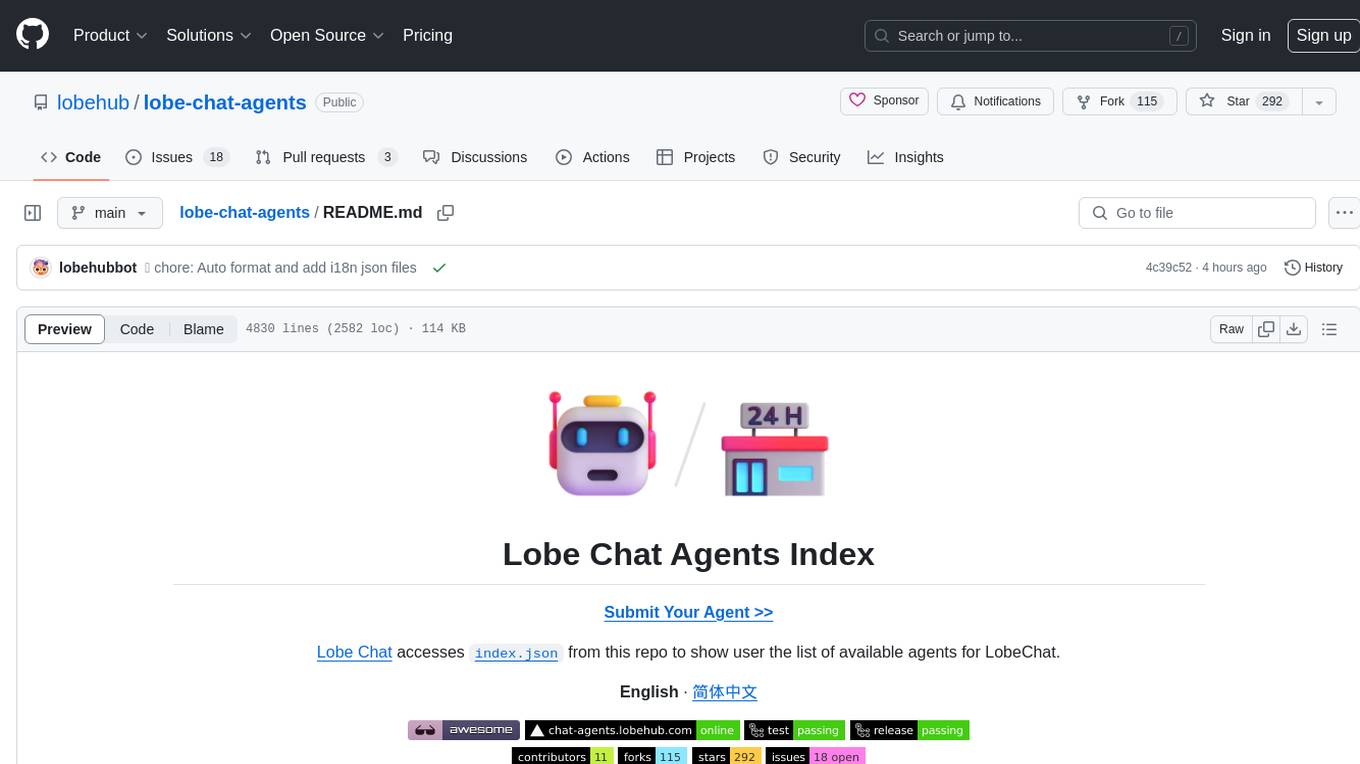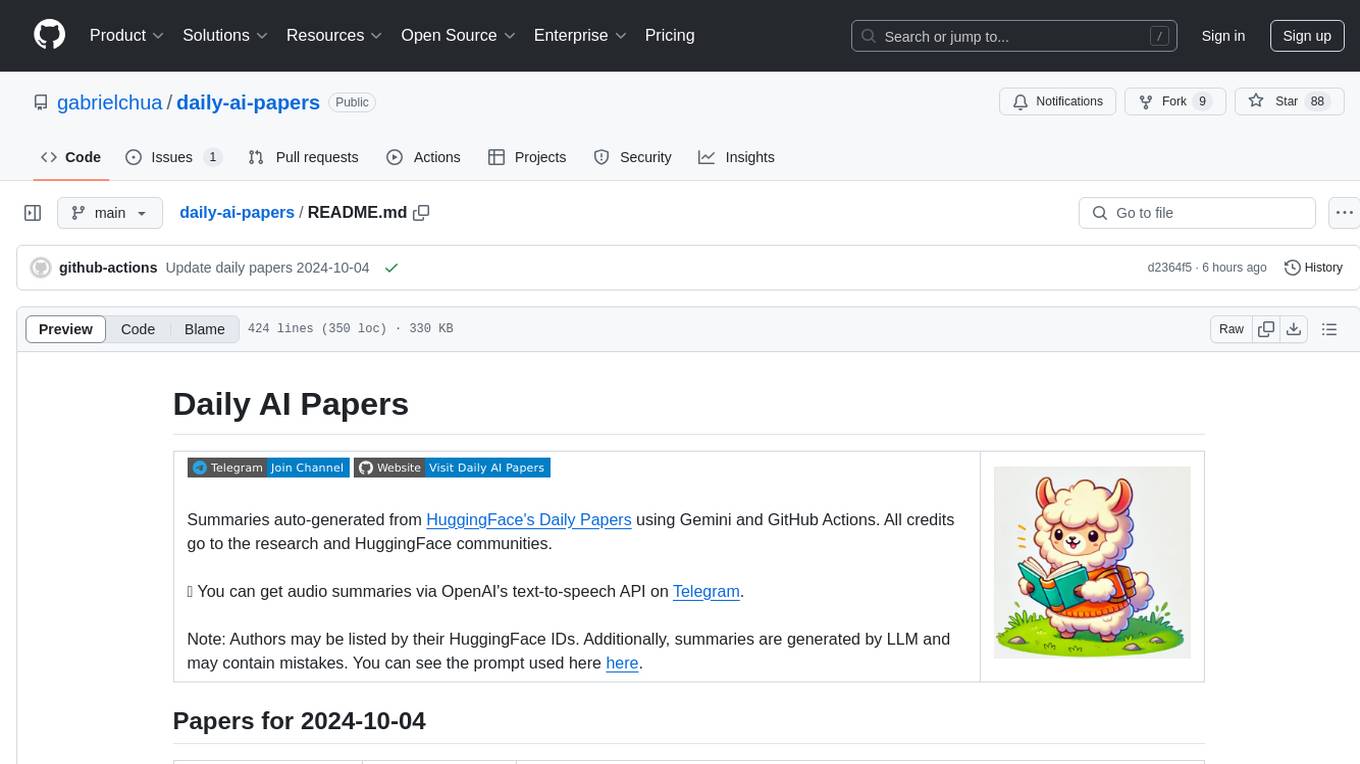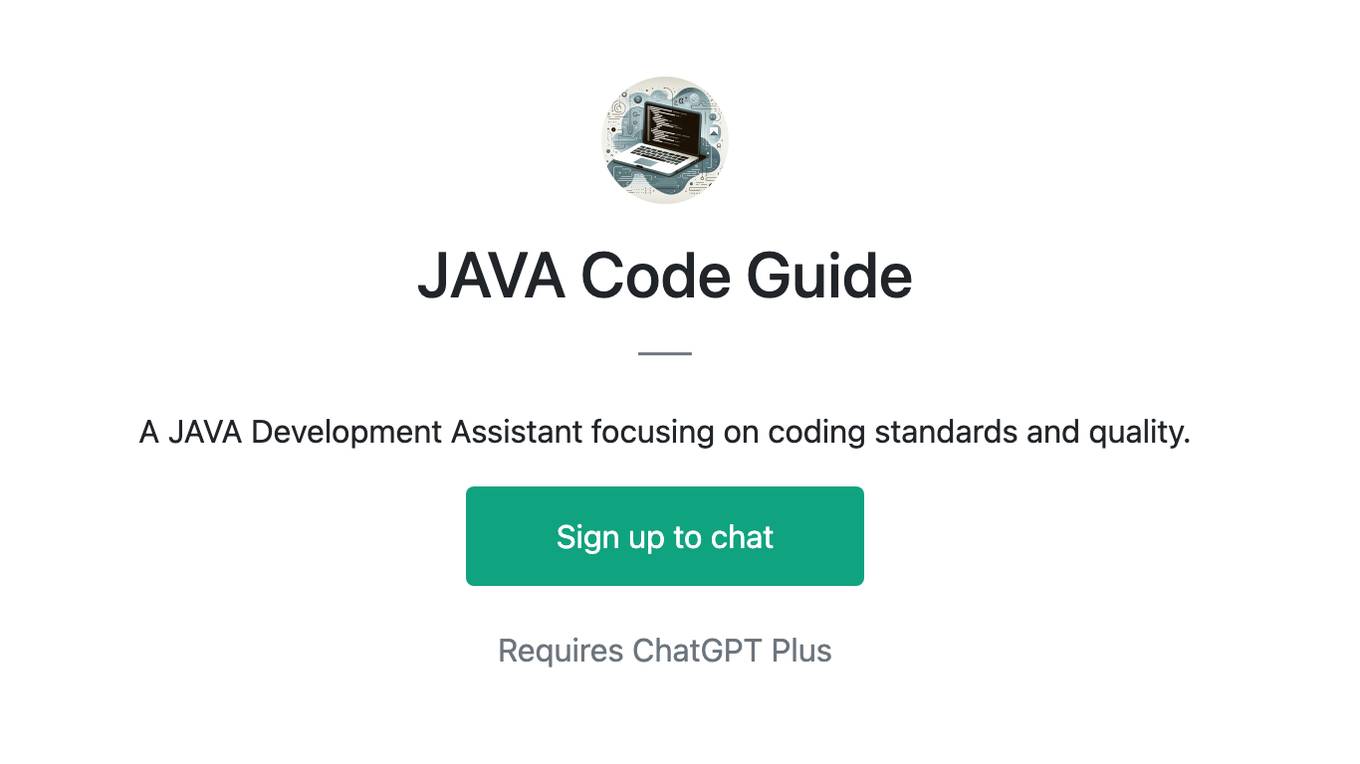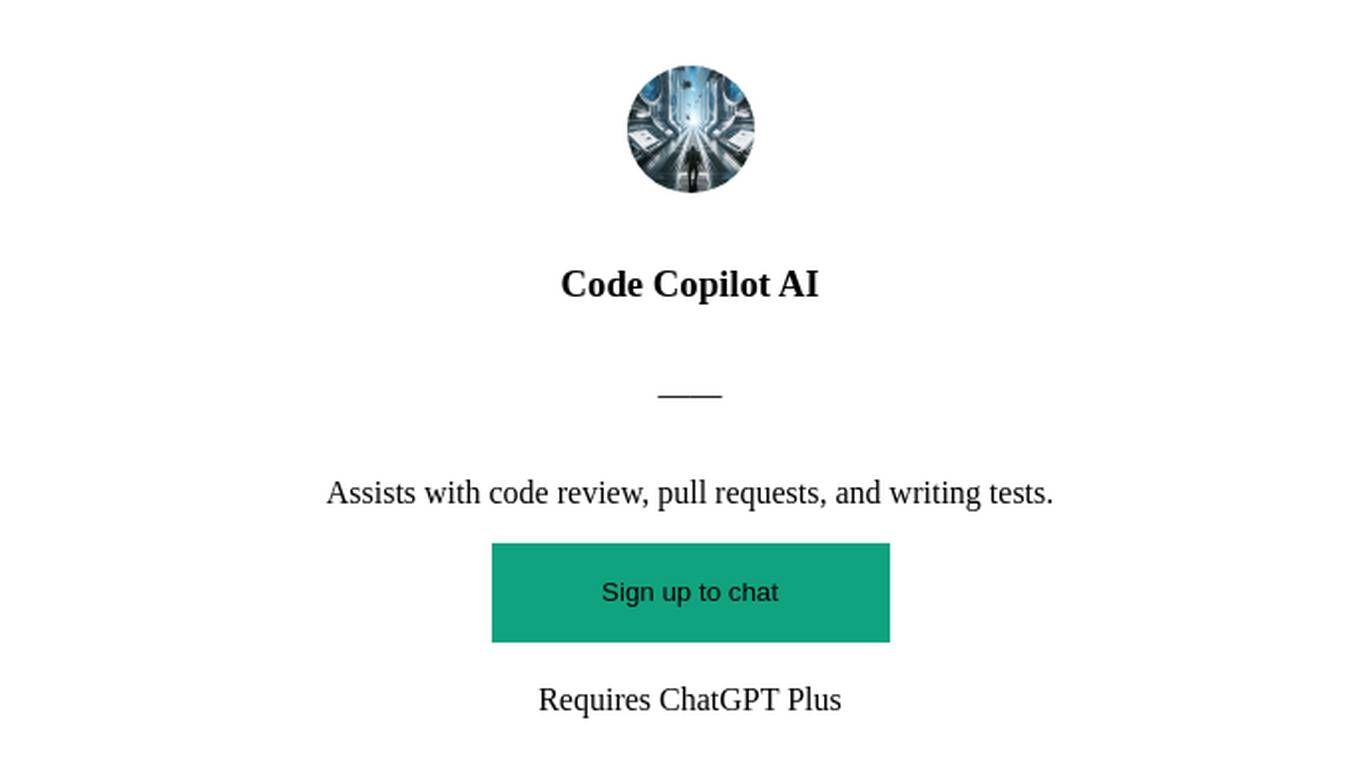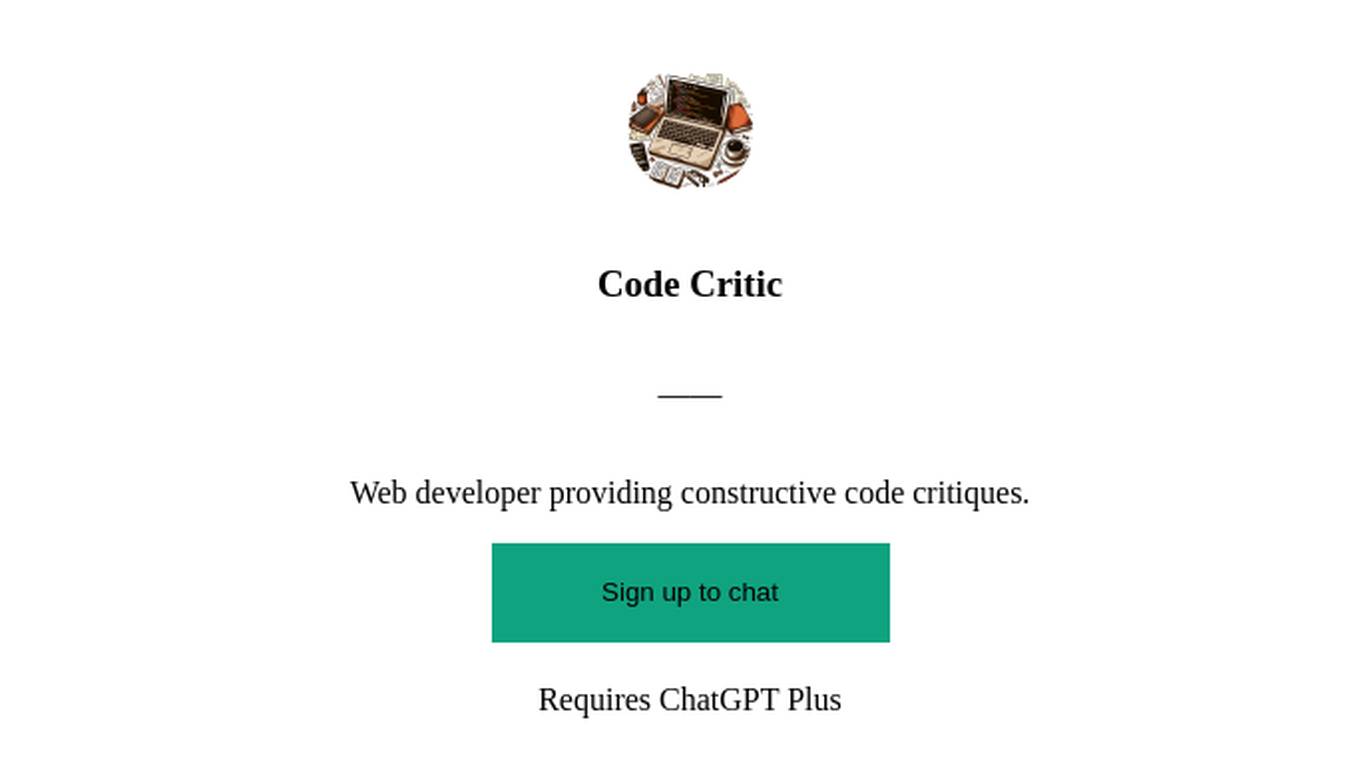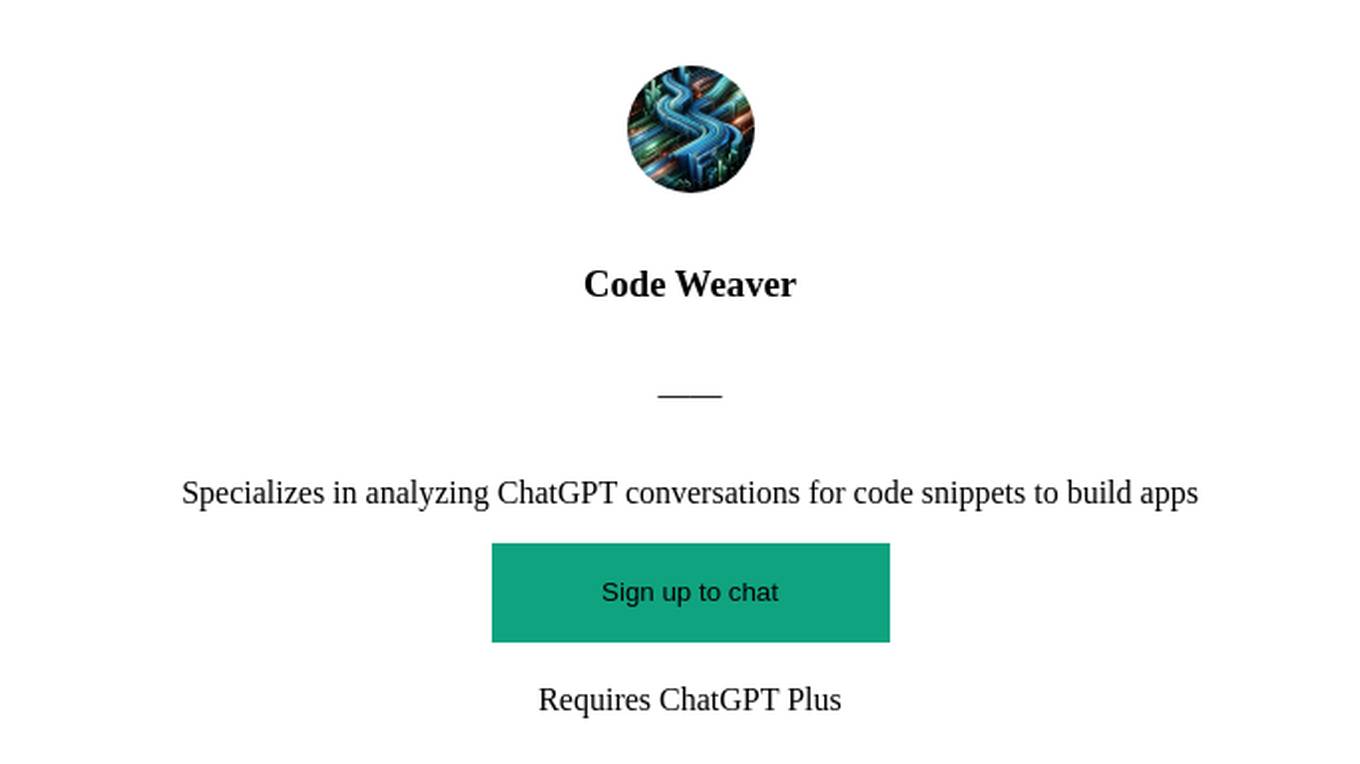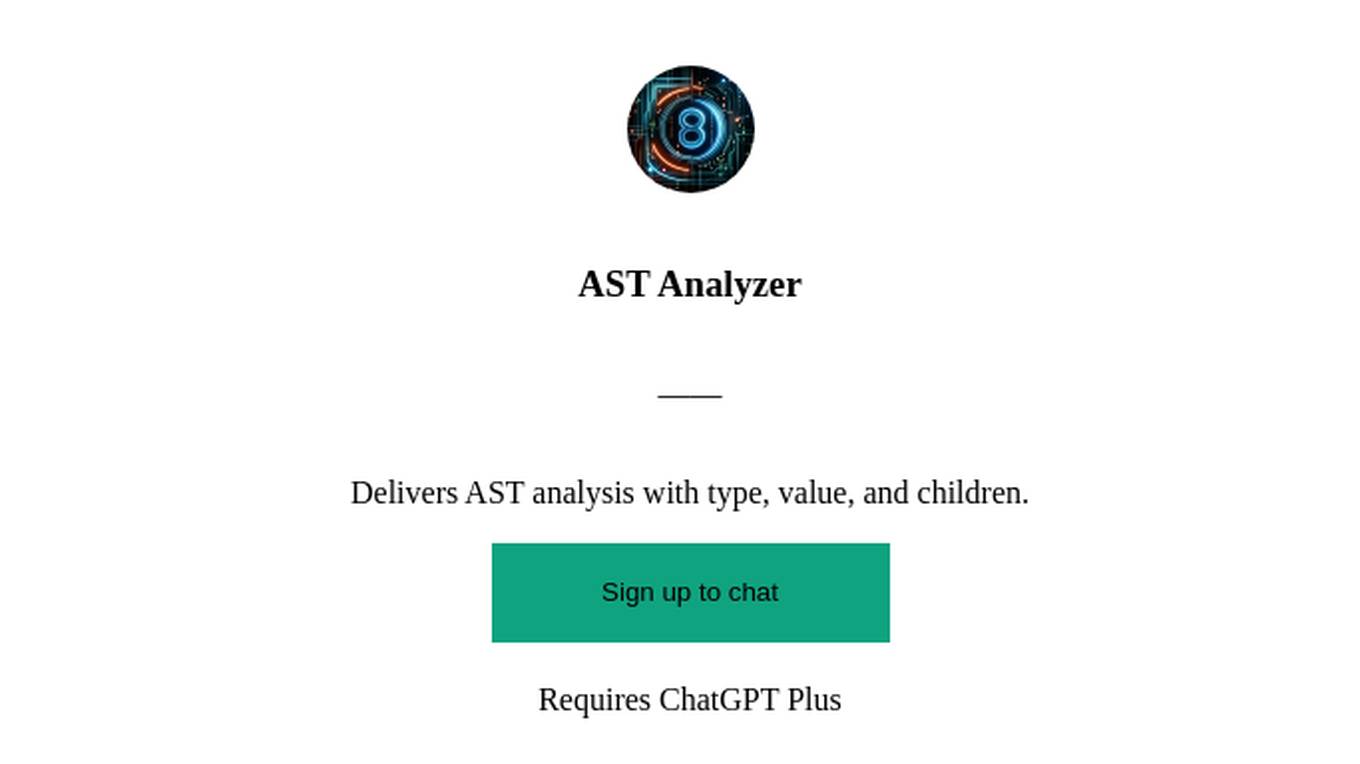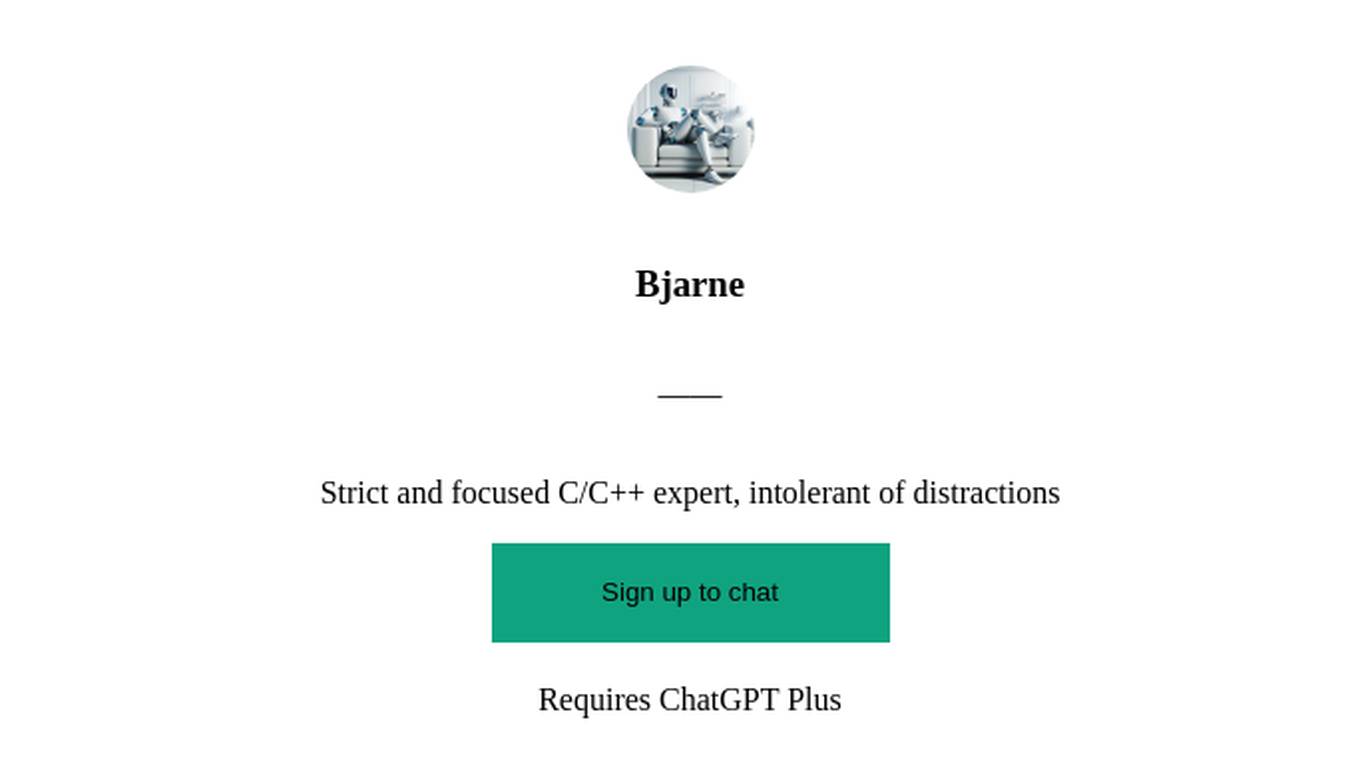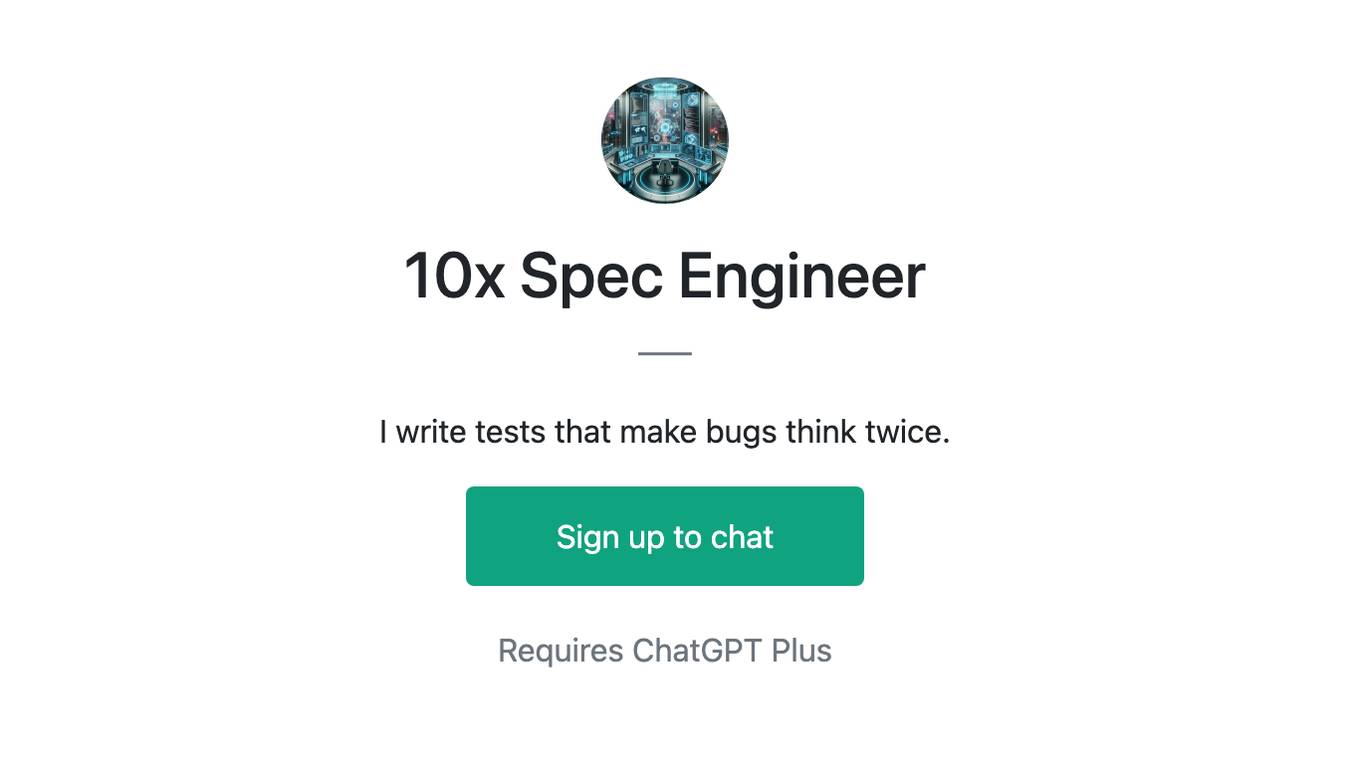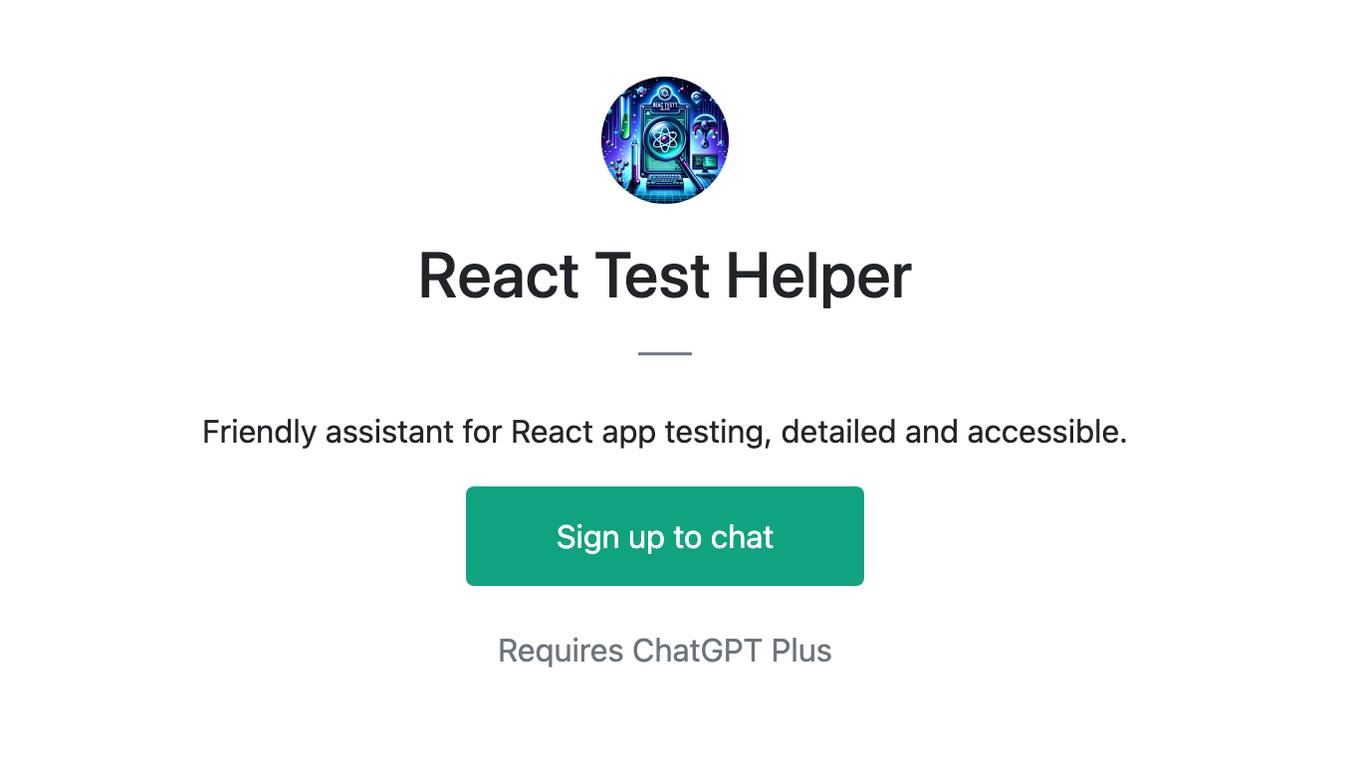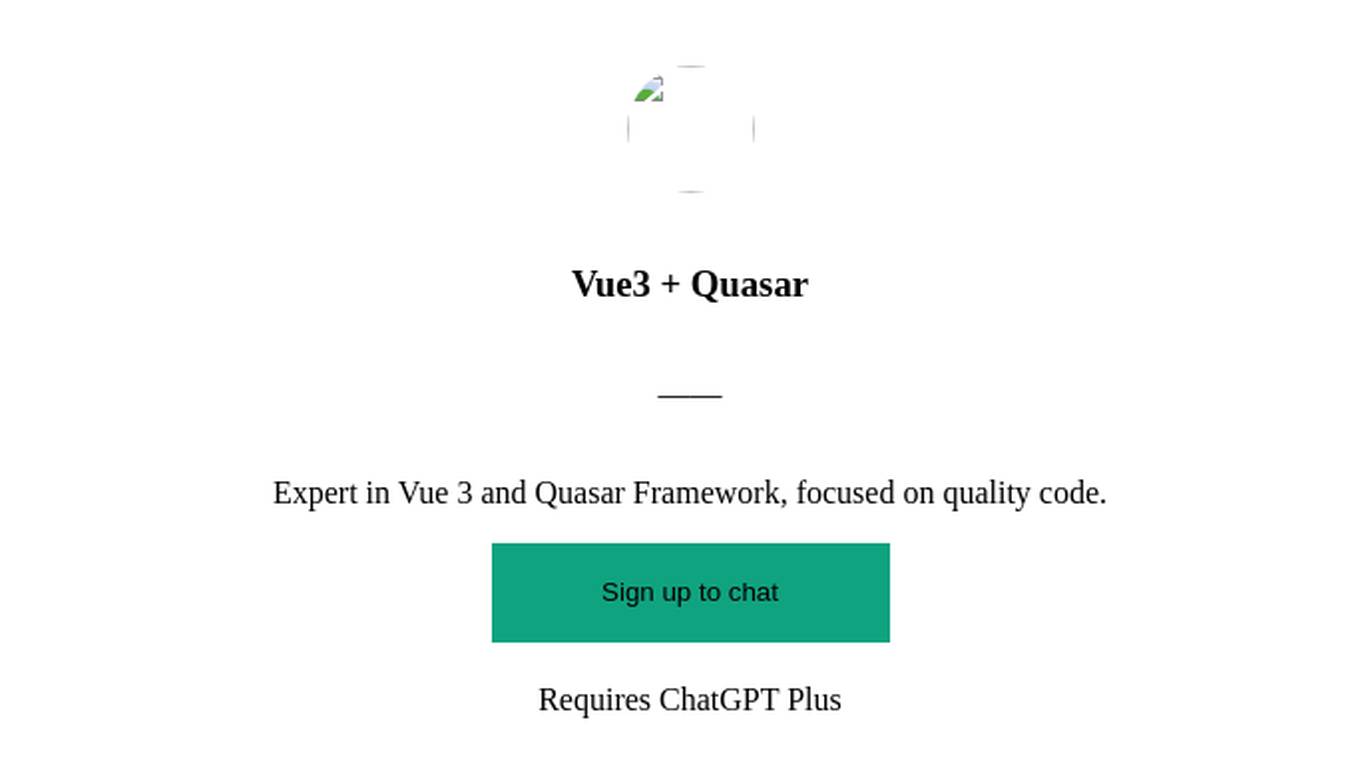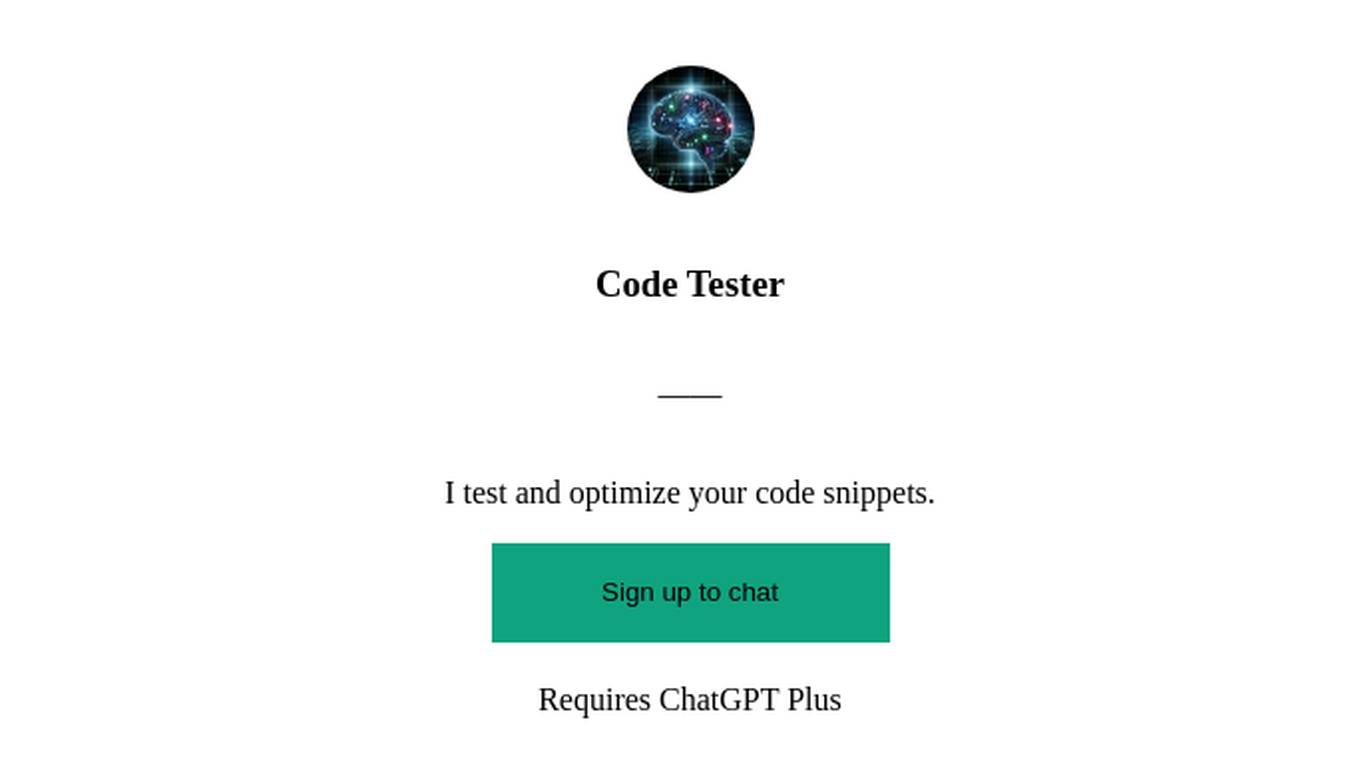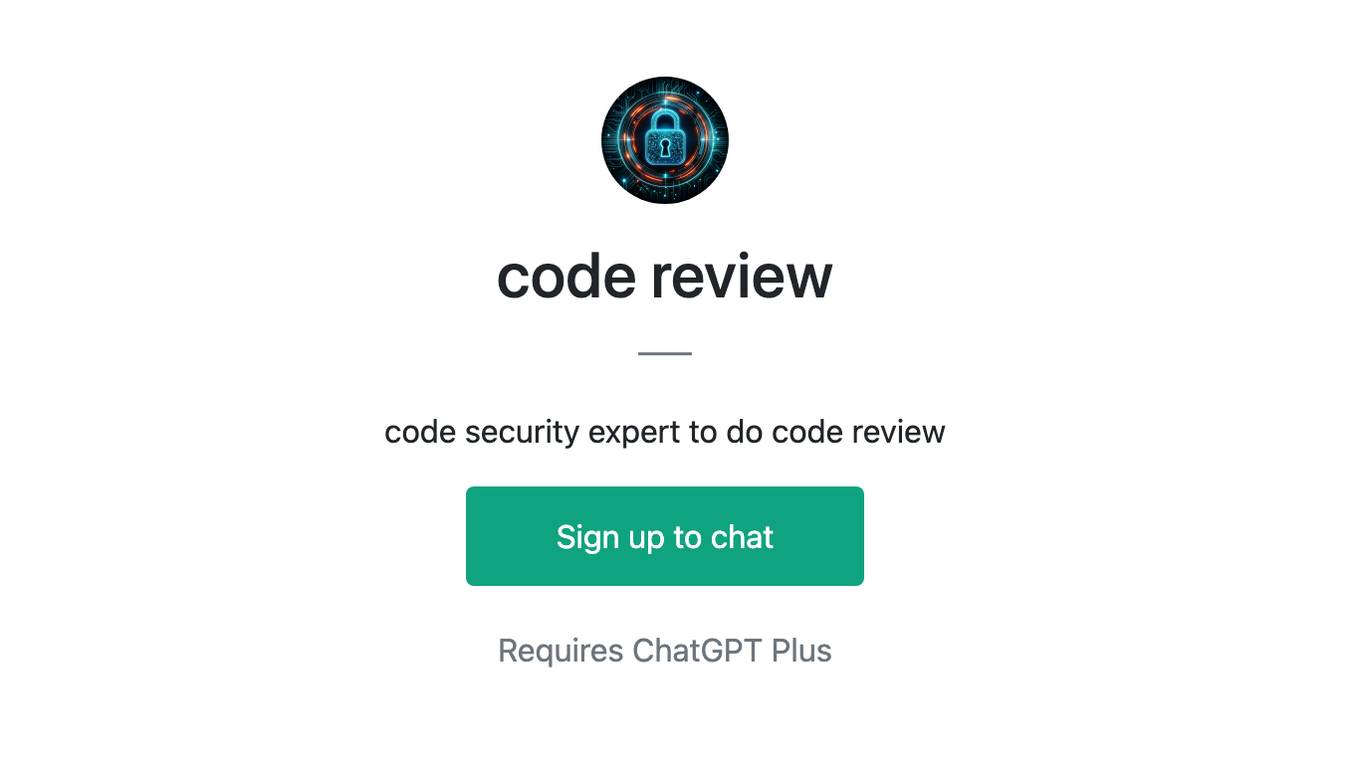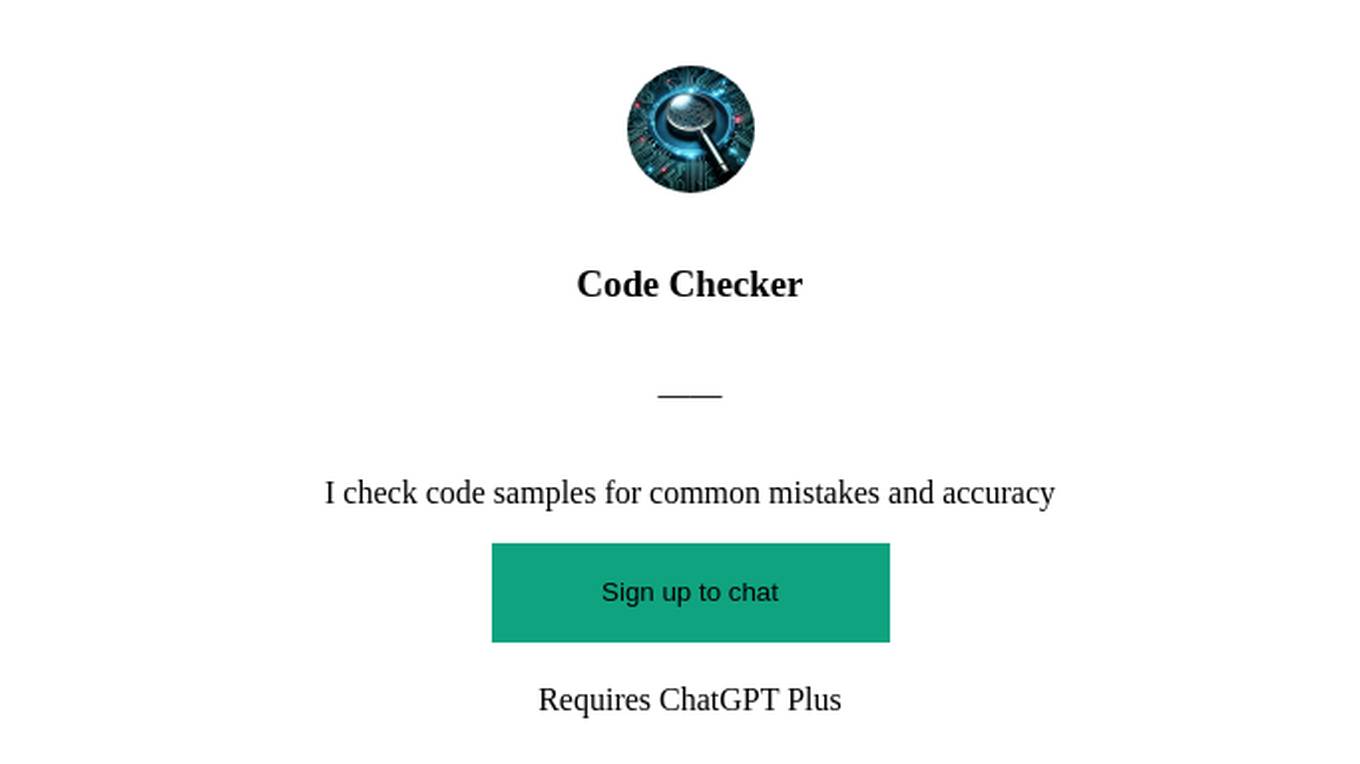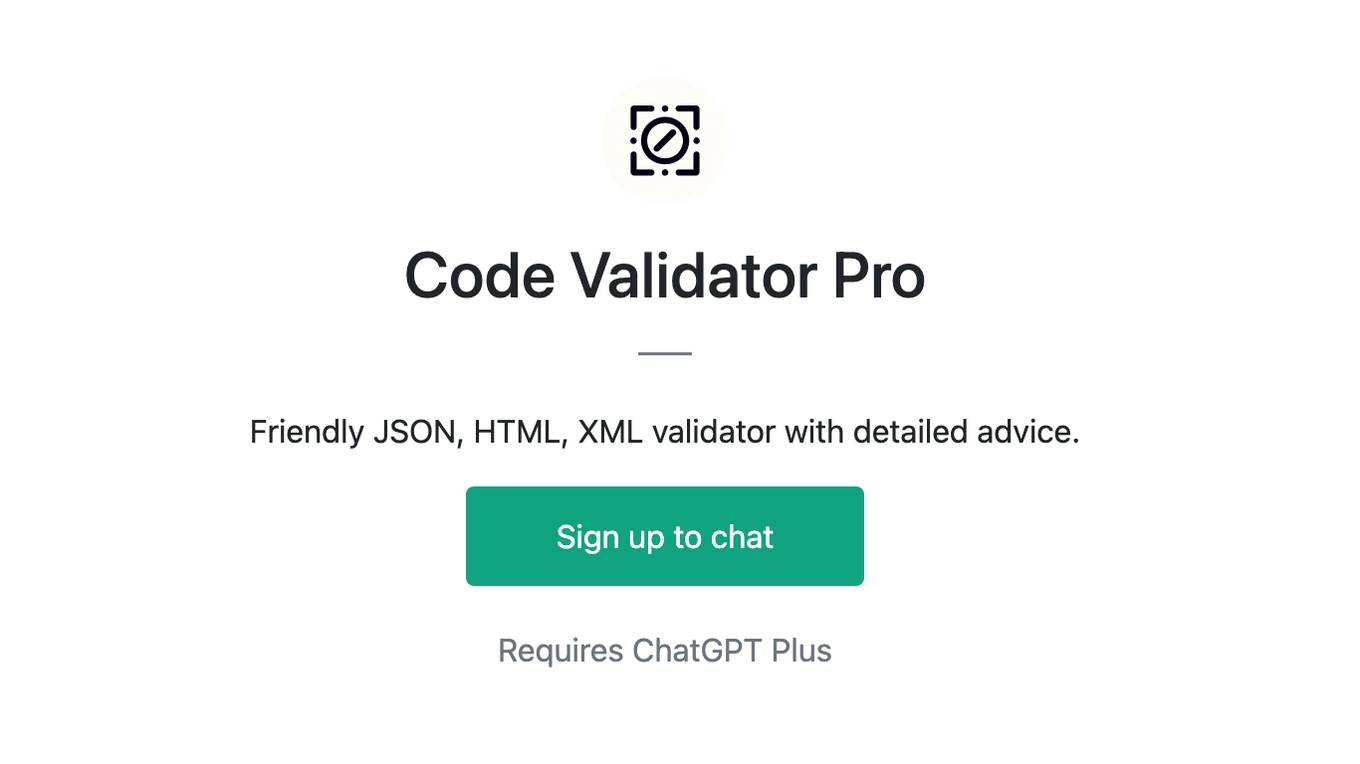Best AI tools for< Code Quality Enhancement >
20 - AI tool Sites
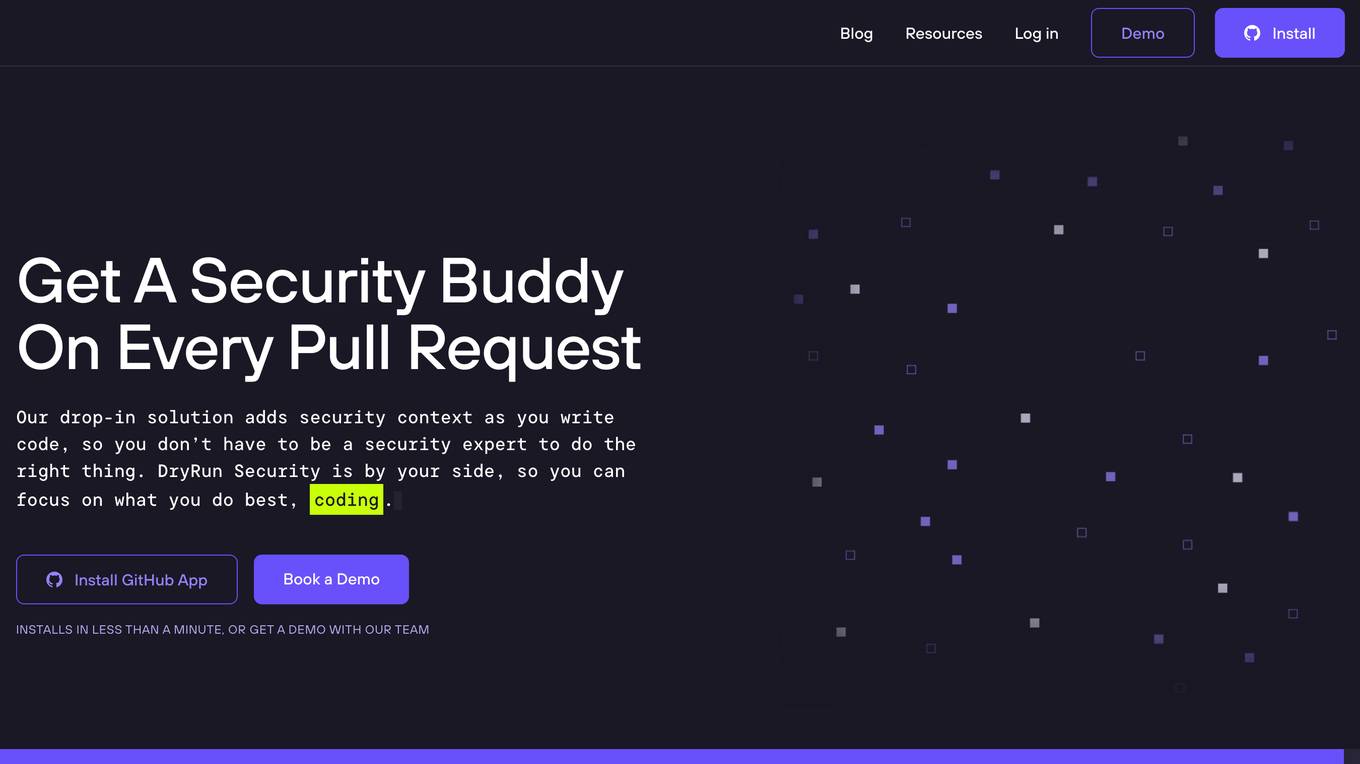
DryRun Security
DryRun Security is an AI-powered security tool designed to provide developers with security context and analysis for code changes in real-time. It offers a suite of analyzers to identify risky code changes, such as SQL injection, command injection, and sensitive file modifications. The tool integrates seamlessly with GitHub repositories, ensuring developers receive security feedback before merging code changes. DryRun Security aims to empower developers to write secure code efficiently and effectively.
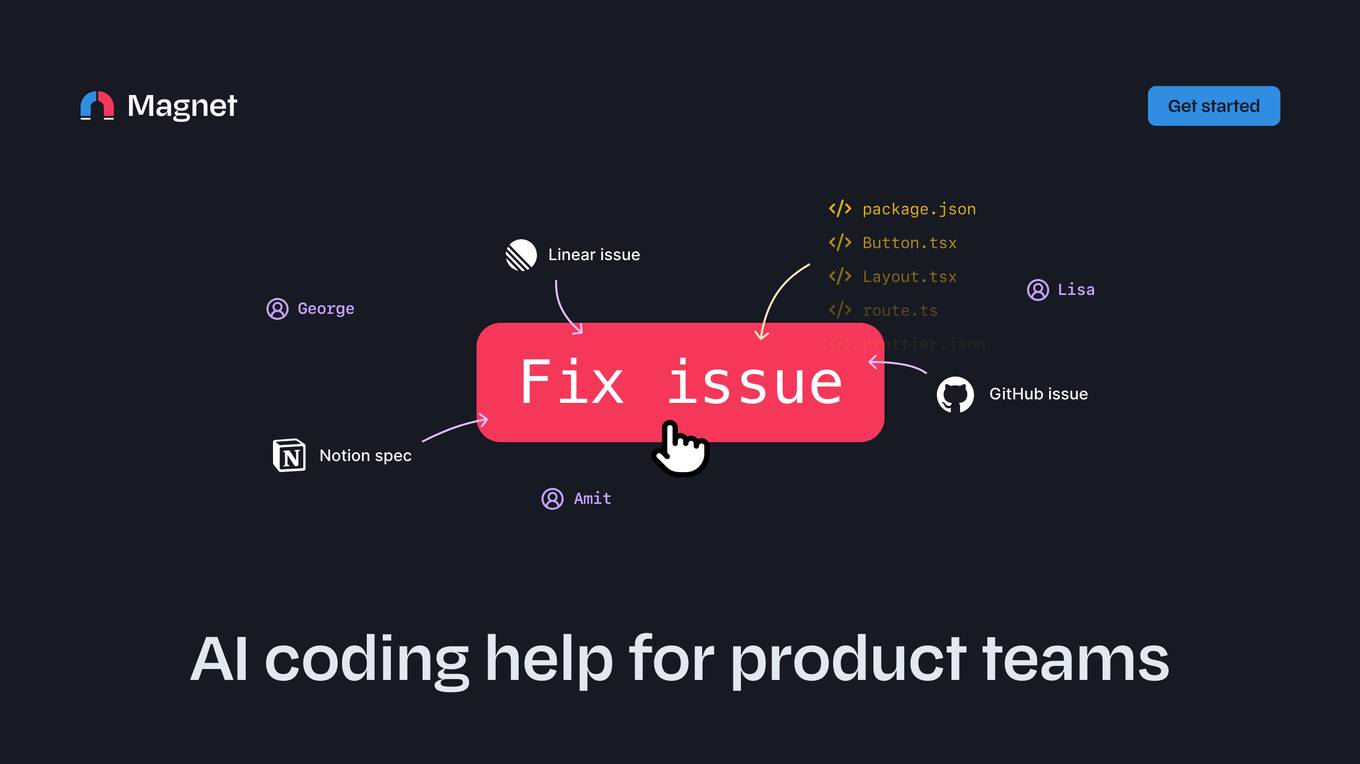
Magnet
Magnet is an AI coding assistant that helps product teams fix issues, share AI threads, and organize projects. It integrates with Linear, GitHub, and Notion, and provides auto-suggested files and code files for personalized and accurate AI recommendations. Magnet also offers prompt templates to help users get started and suggests quick fixes for bugs or enhancements.
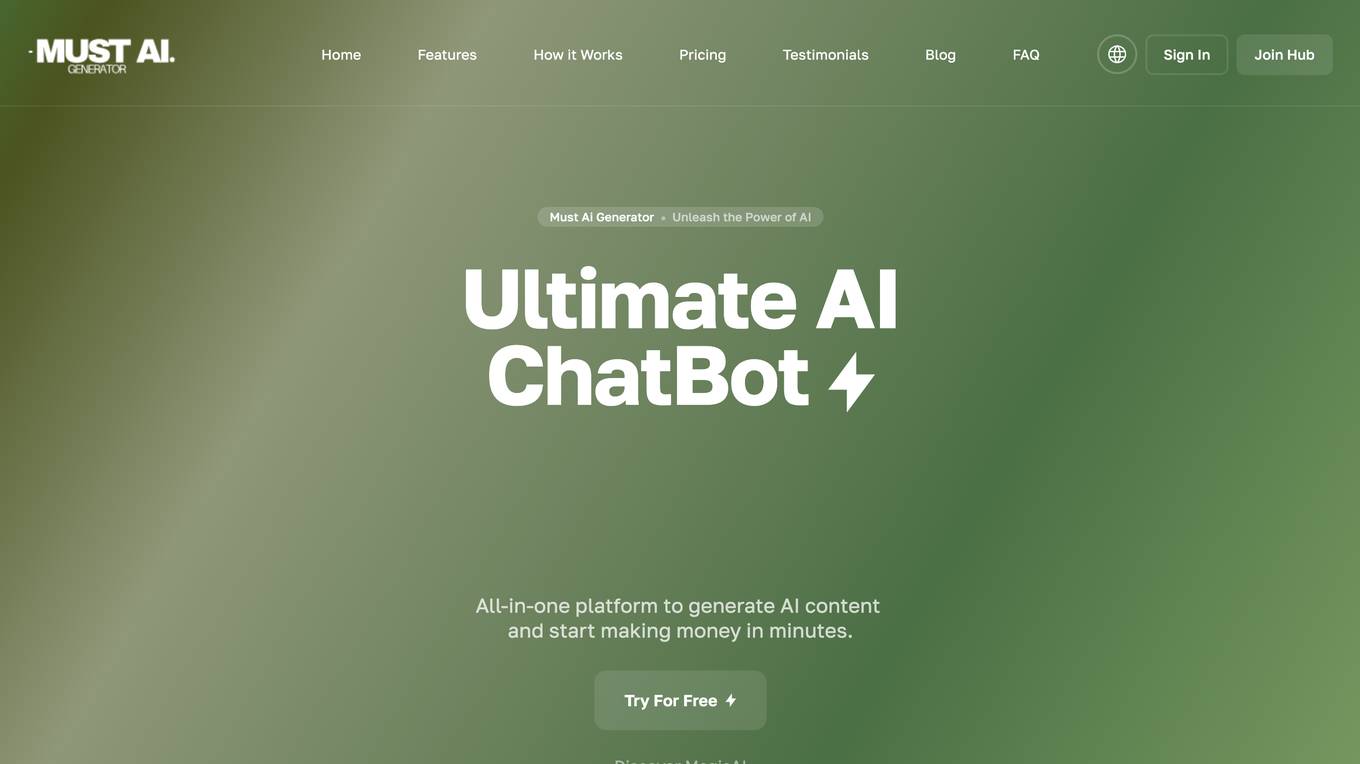
Must AI Generator
Must AI Generator is an all-in-one platform that provides AI-powered content creation tools to help businesses and individuals generate high-quality text, images, code, chat responses, and more. With its user-friendly interface and advanced AI technology, Must AI Generator makes it easy to create engaging and effective content for various marketing and communication needs.

Senior AI
Senior AI is a platform that leverages Artificial Intelligence to help individuals and companies develop and manage software products more efficiently and securely. It offers codebase awareness, bug analysis, security optimization, and productivity enhancements, making software development faster and more reliable. The platform provides different pricing tiers suitable for individuals, power users, small teams, growing teams, and large teams, with the option for enterprise solutions. Senior AI aims to supercharge software development with an AI-first approach, guiding users through the development process and providing tailored code suggestions and security insights.
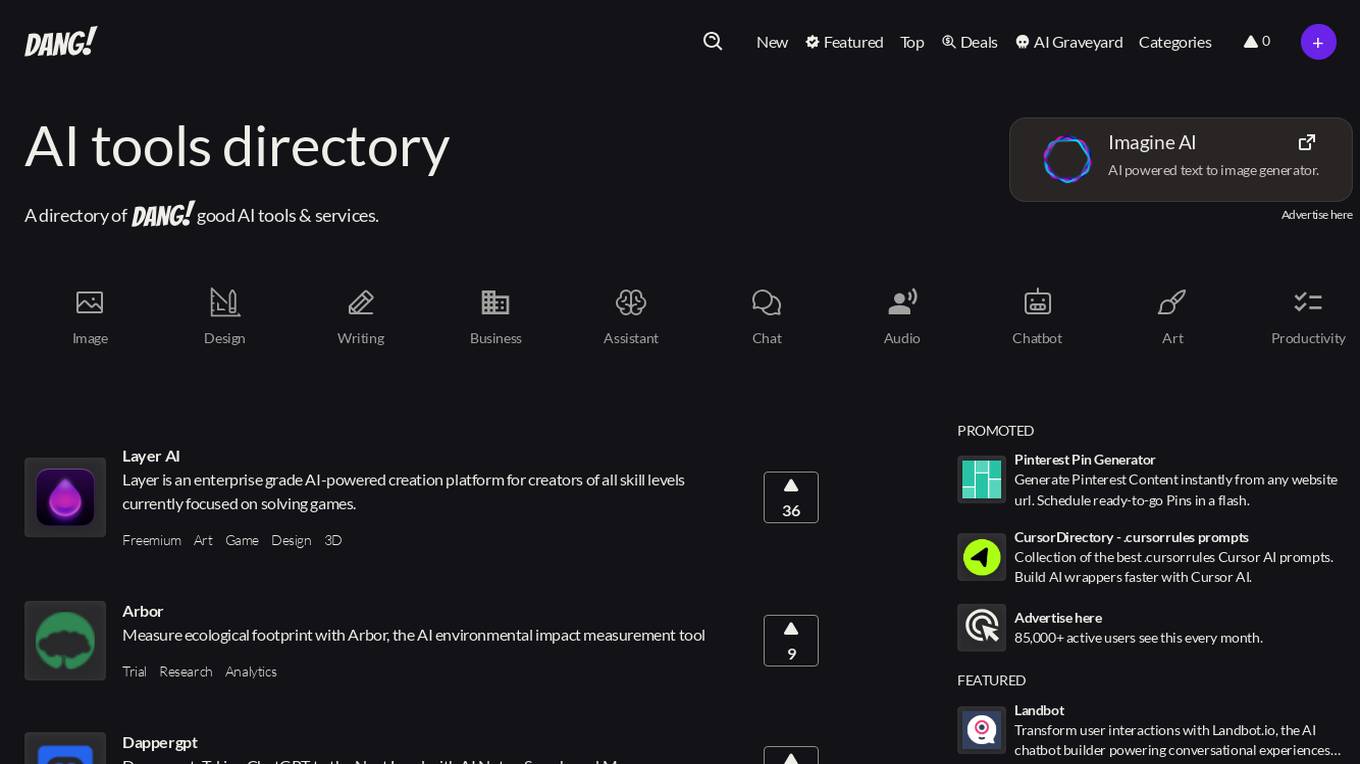
Dang.ai
Dang.ai is an AI Tools Directory that provides a comprehensive list of AI tools and services. It offers a platform for users to discover and explore various AI-powered applications across different categories such as image design, writing, business, chat, audio, chatbot, art, productivity, video, TTS, marketing, code search, and more. Users can find tools for automating emails, marketing strategies, content optimization, video summarization, writing enhancement, anime art generation, web accessibility, survey platforms, sketch rendering, content generation, highlight finding, web accessibility, digital commerce insights, study tools, photo editing, drug development, media creation, logo design, and much more.
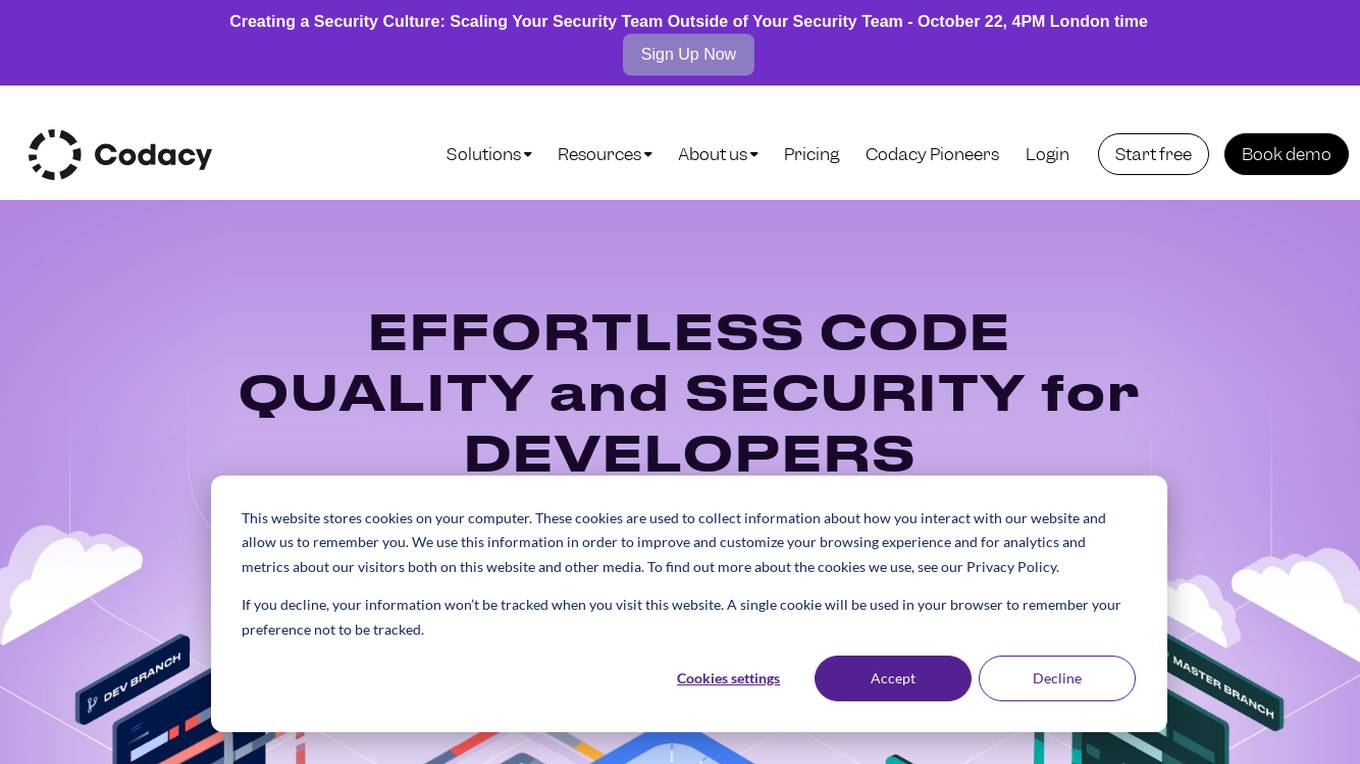
Codacy
Codacy is an AI-powered code quality and security platform designed for developers to efficiently optimize and secure their code. It offers a unified set of AppSec tools, data-driven insights, and seamless integrations across the software development lifecycle. Codacy helps teams monitor and resolve security issues at scale, improve code quality, and prevent breaking changes. With AI suggested fixes and effortless code quality monitoring, Codacy is a valuable tool for businesses and developers alike.
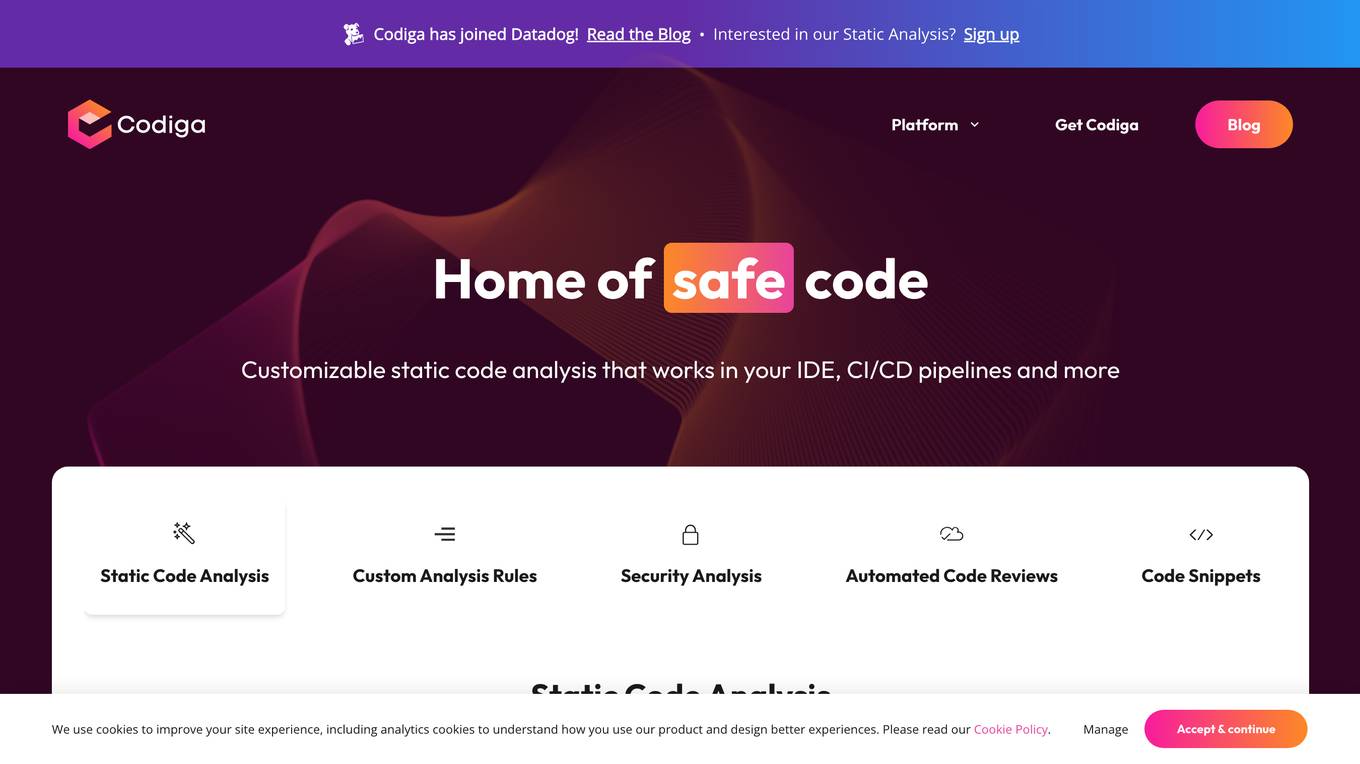
Codiga
Codiga is a static code analysis tool that helps developers write clean, safe, and secure code. It works in real-time in your IDE and CI/CD pipelines, and it can be customized to meet your specific needs. Codiga supports a wide range of languages and frameworks, and it integrates with popular tools like GitHub, GitLab, and Bitbucket.
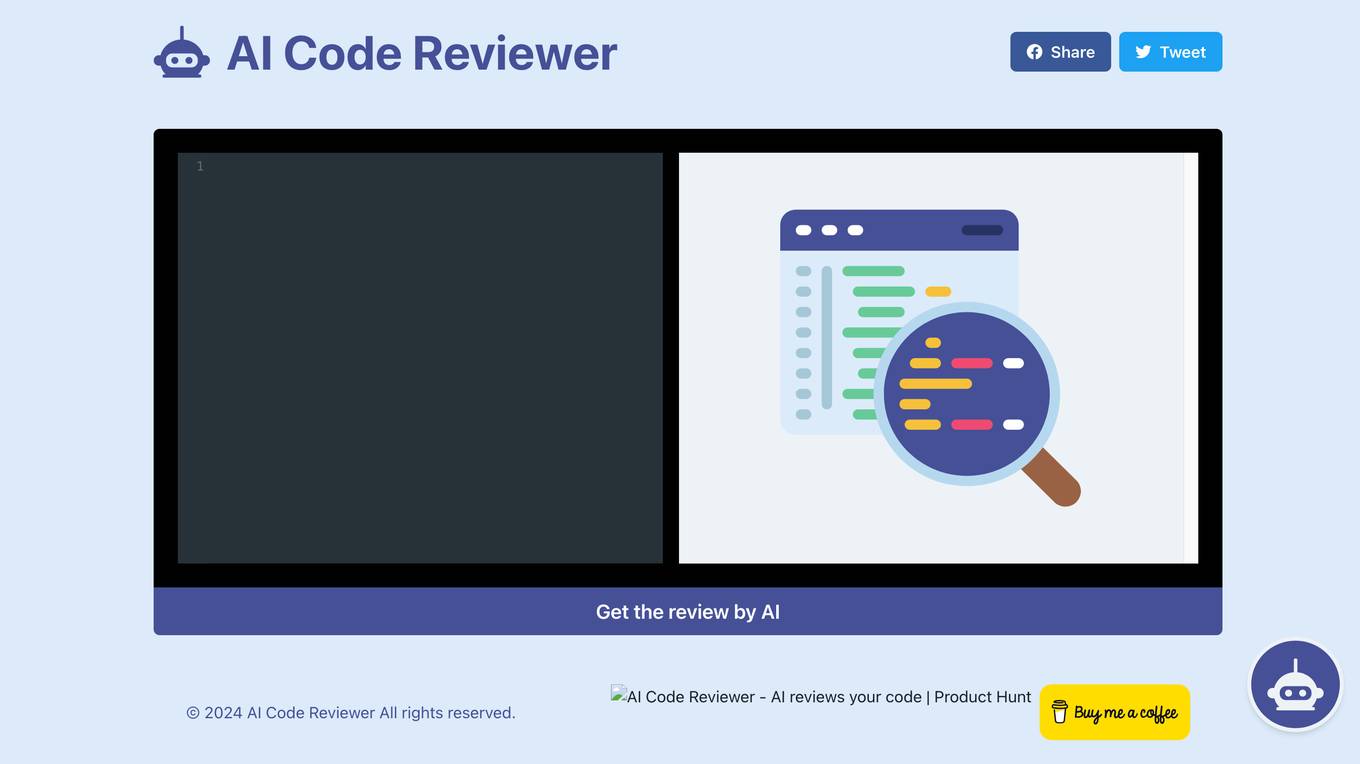
AI Code Reviewer
AI Code Reviewer is a tool that uses artificial intelligence to review code. It can help you find bugs, improve code quality, and enforce coding standards.
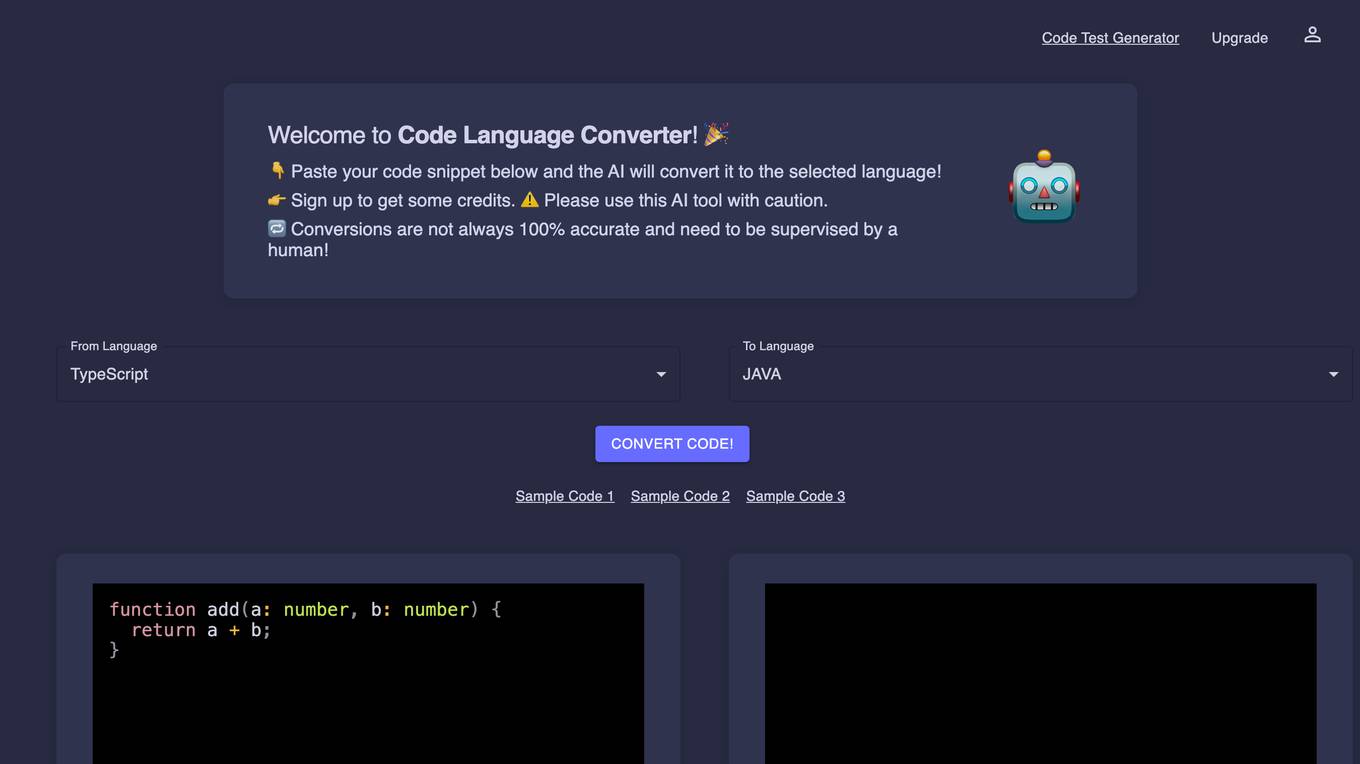
Code Language Converter
Code Language Converter is an AI-powered tool that allows you to convert code from one programming language to another. Simply paste your code snippet into the converter and select the desired output language. The AI will then generate the converted code, which you can download or copy and paste into your project.Code Language Converter is a valuable tool for developers of all levels. It can save you time and effort by automating the code conversion process. Additionally, the converter can help you to learn new programming languages by providing you with a way to see how code is written in different languages.
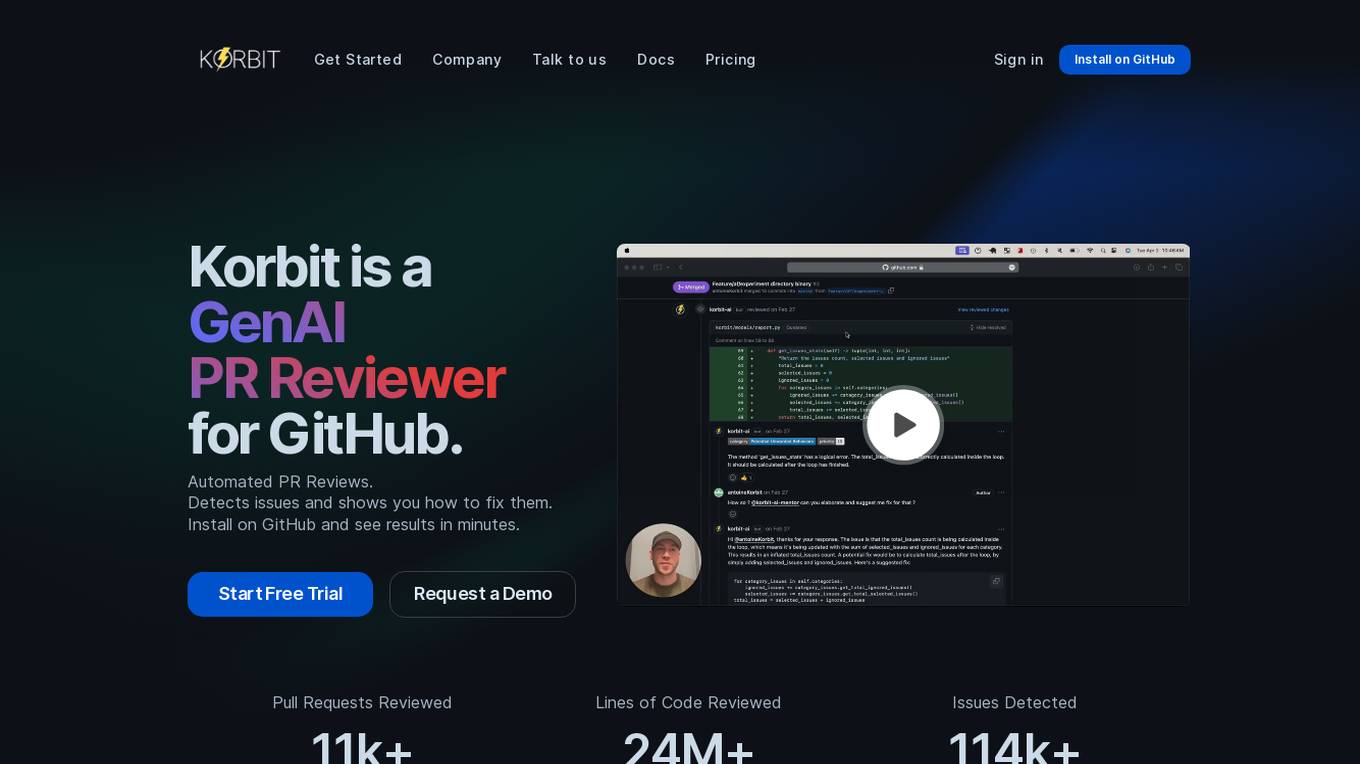
Korbit
Korbit is an AI-powered code review tool that helps developers write better code, faster. It integrates directly into your GitHub PR workflow and provides instant feedback on your code, identifying issues and providing actionable recommendations. Korbit also provides valuable insights into code quality, project status, and developer performance, helping you to boost your productivity and elevate your code.
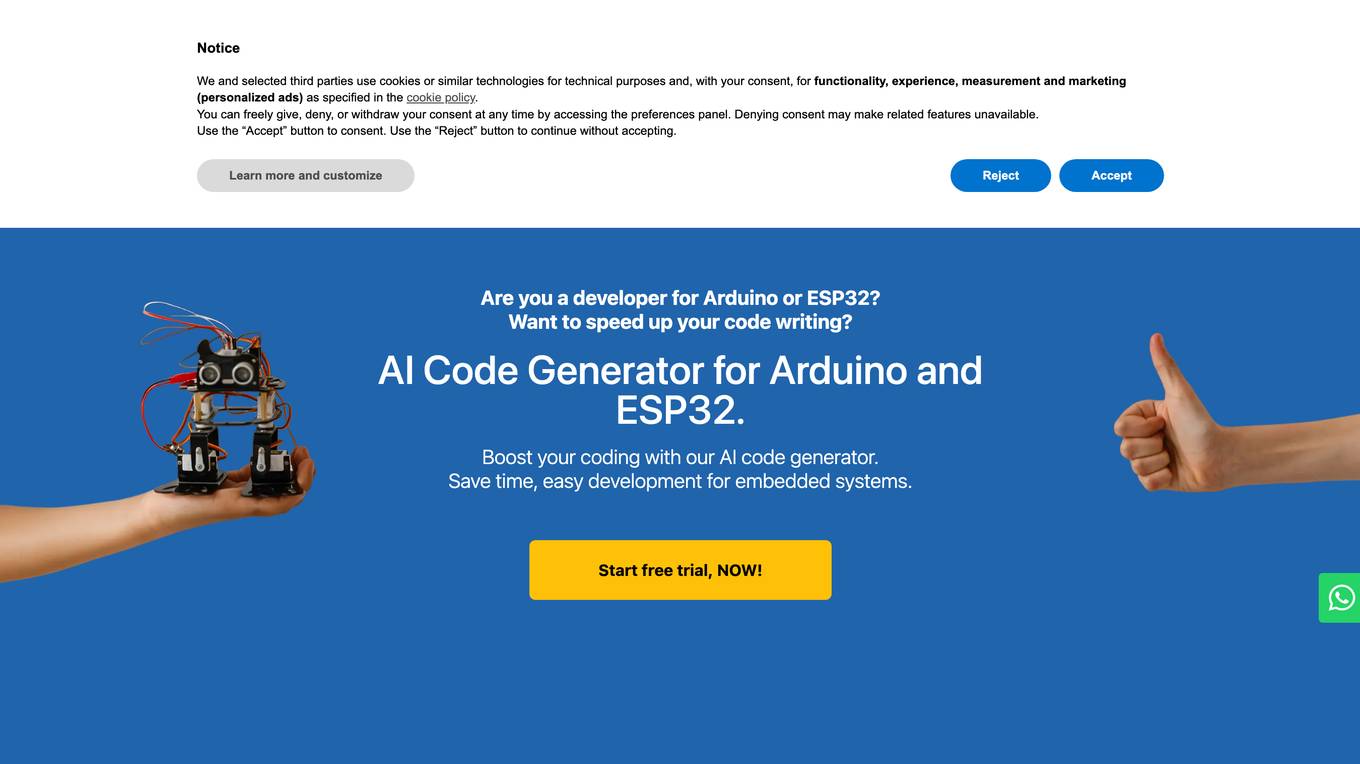
Please Don't Code
Please Don't Code is an AI Code Generator specifically designed for Arduino and ESP32 electronic boards. It offers a cutting-edge code generation automation service to empower freelance programmers and small/medium businesses in bringing their prototype projects to life in significantly less time compared to manual coding approaches. The platform aims to expedite and automate low-level code development processes, providing quality solutions and efficiency at a budget-friendly scale for professionals and Small/Medium Enterprises.
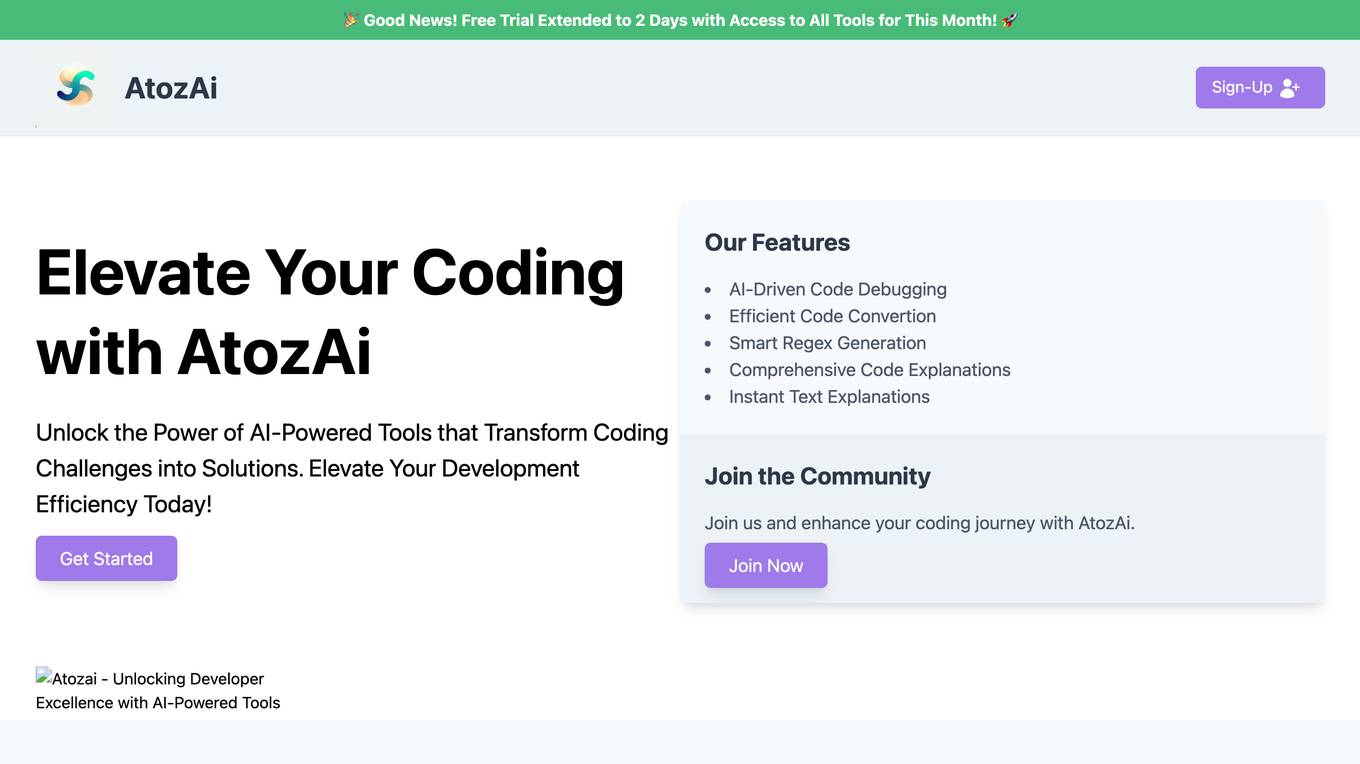
AtozAi
AtozAi is an AI application designed to empower developers by providing AI-powered tools that enhance coding efficiency and productivity. The platform offers features such as AI-driven code debugging, efficient code conversion, smart regex generation, comprehensive code explanations, and instant text explanations. AtozAi aims to cover a wide range of coding tasks with specialized AI algorithms, continually expanding its toolkit to make tasks easier, more efficient, and creative for developers.
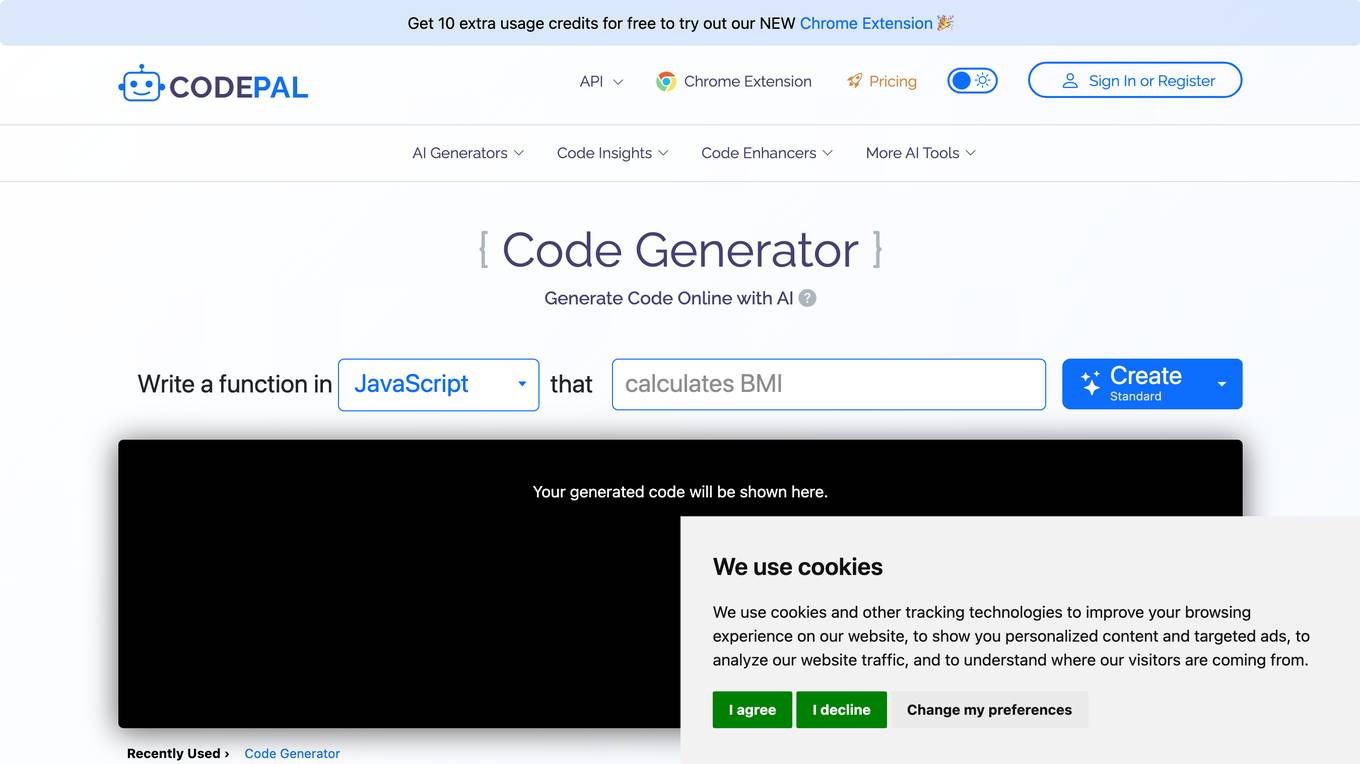
CodePal
CodePal is a comprehensive platform that offers a range of coding helpers and tools to assist developers. It includes AI-powered code generators that can translate plain words into computer code, helping users automate tasks, improve code quality, and enhance productivity. CodePal supports various programming languages and technologies, making it a versatile tool for developers of all levels.
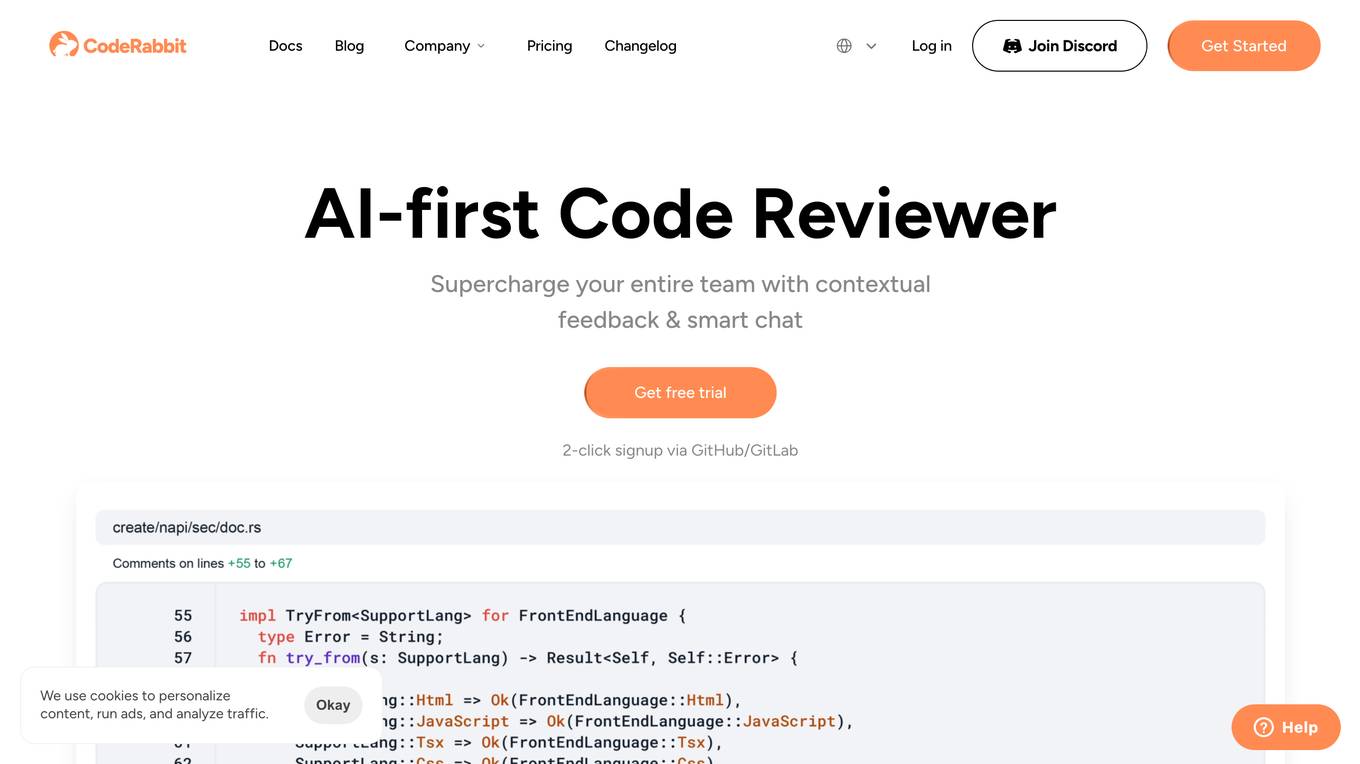
CodeRabbit
CodeRabbit is an innovative AI code review platform that streamlines and enhances the development process. By automating reviews, it dramatically improves code quality while saving valuable time for developers. The system offers detailed, line-by-line analysis, providing actionable insights and suggestions to optimize code efficiency and reliability. Trusted by hundreds of organizations and thousands of developers daily, CodeRabbit has processed millions of pull requests. Backed by CRV, CodeRabbit continues to revolutionize the landscape of AI-assisted software development.
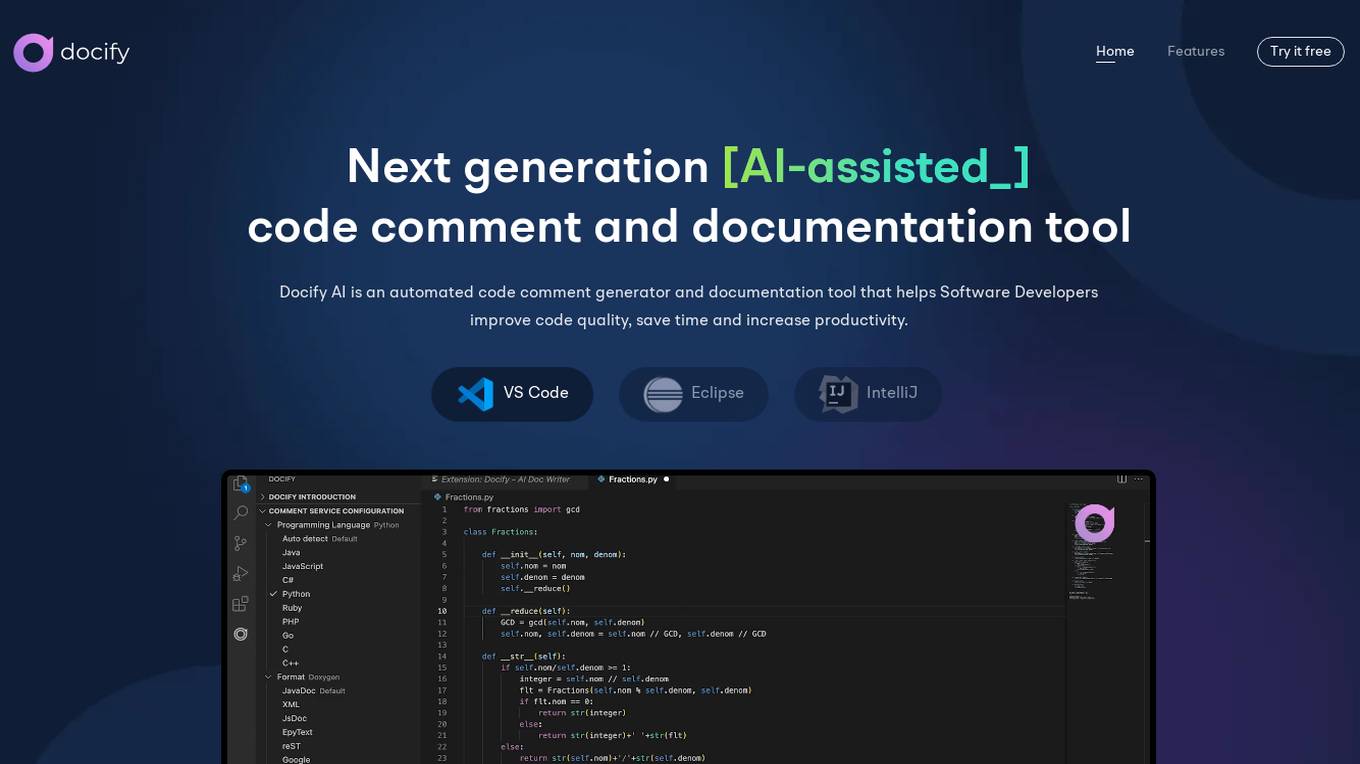
Docify AI
Docify AI is an AI-assisted code comment and documentation tool designed to help software developers improve code quality, save time, and increase productivity. It offers features such as automated documentation generation, comment translation, inline comments, and code coverage analysis. The tool supports multiple programming languages and provides a user-friendly interface for efficient code documentation. Docify AI is built on proprietary AI models, ensuring data privacy and high performance for professional developers.
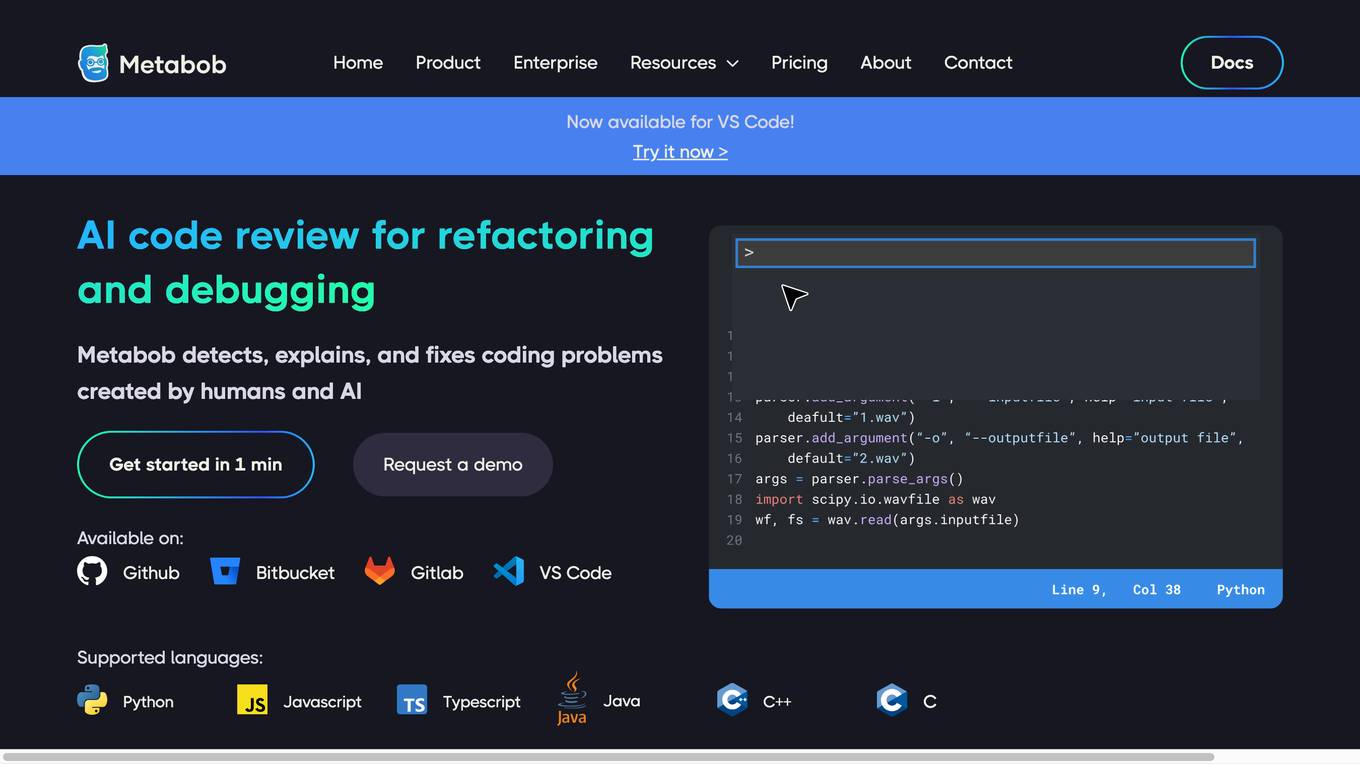
Metabob
Metabob is an AI-powered code review tool that helps developers detect, explain, and fix coding problems. It utilizes proprietary graph neural networks to detect problems and LLMs to explain and resolve them, combining the best of both worlds. Metabob's AI is trained on millions of bug fixes performed by experienced developers, enabling it to detect complex problems that span across codebases and automatically generate fixes for them. It integrates with popular code hosting platforms such as GitHub, Bitbucket, Gitlab, and VS Code, and supports various programming languages including Python, Javascript, Typescript, Java, C++, and C.
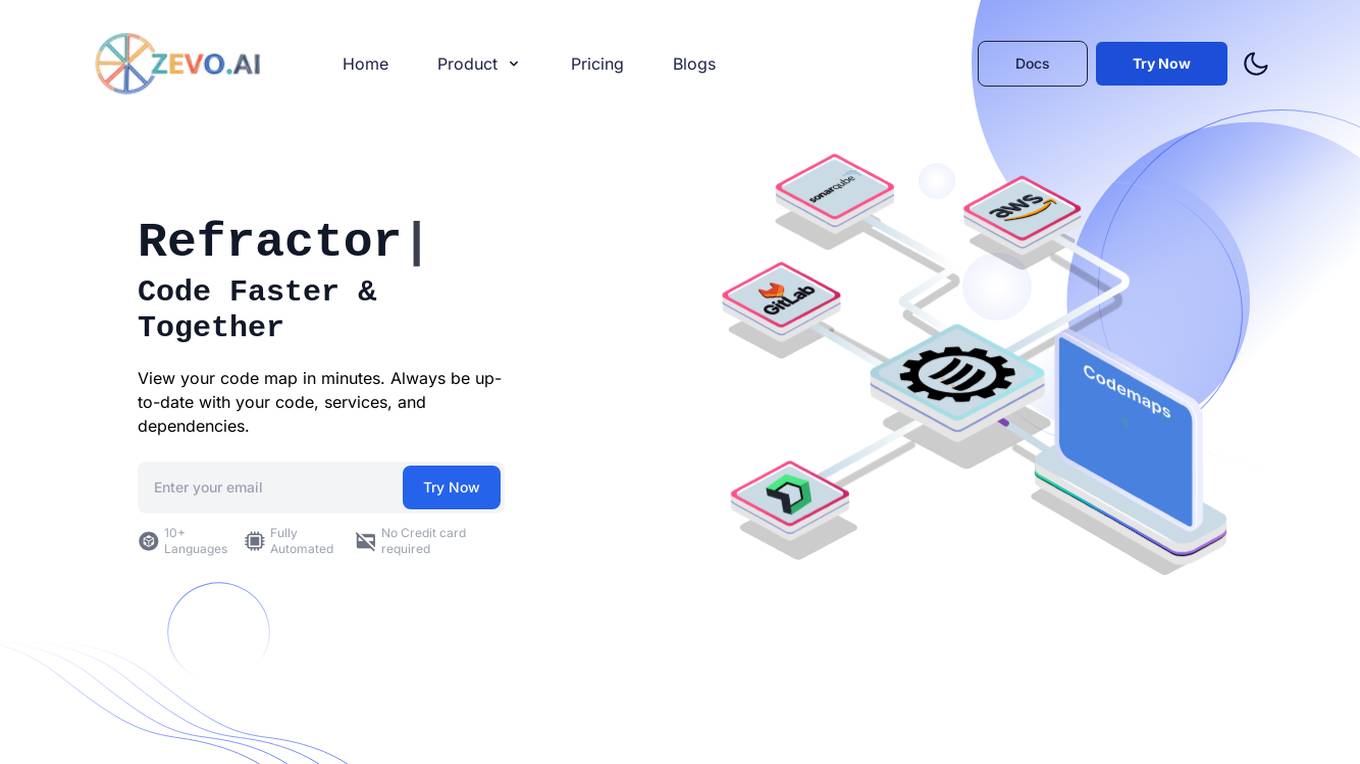
Zevo.ai
Zevo.ai is an AI-powered code visualization tool designed to accelerate code comprehension, deployment, and observation. It offers dynamic code analysis, contextual code understanding, and automatic code mapping to help developers streamline shipping, refactoring, and onboarding processes for both legacy and existing applications. By leveraging AI models, Zevo.ai provides deeper insights into code, logs, and cloud infrastructure, enabling developers to gain a better understanding of their codebase.
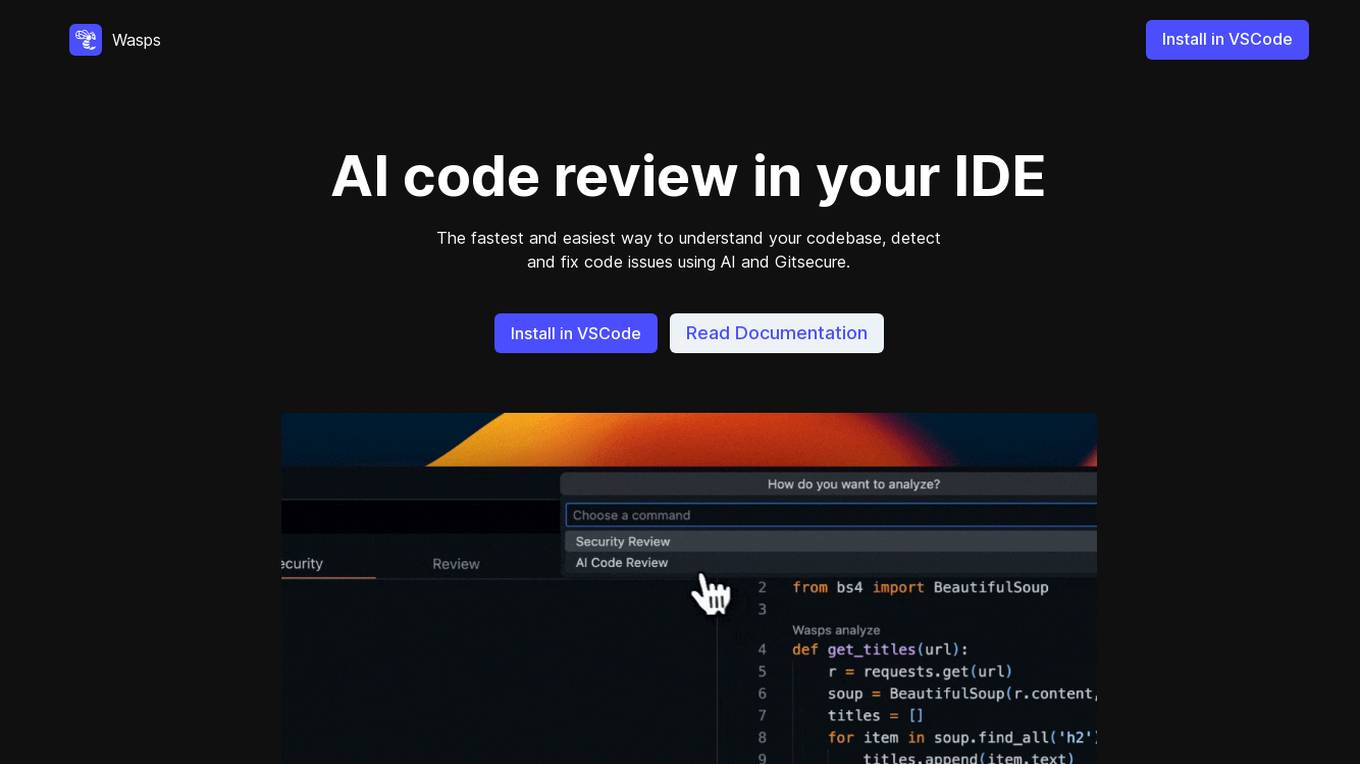
Wasps
Wasps is an AI code review tool that integrates seamlessly into VSCode, providing developers with a fast and efficient way to understand their codebase, detect and fix code issues using AI and Gitsecure. With Wasps, developers can identify and fix buggy & vulnerable code in minutes, receive clear and actionable feedback driven by deep analysis, and get recommendations for potential issues and improvements within their codebase. The tool allows developers to keep coding as usual while Wasps analyzes their code for them, making it easier to maintain code quality and keep bugs out of their code.
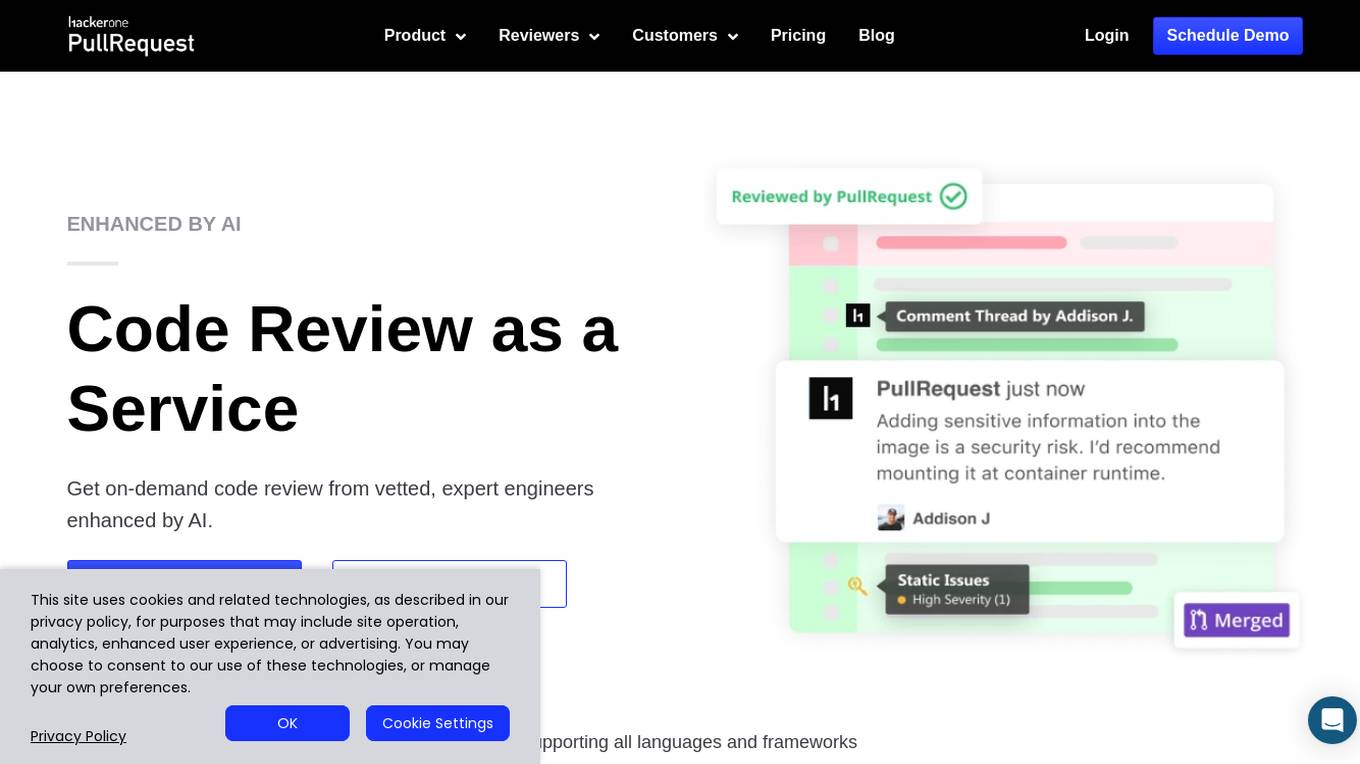
PullRequest
PullRequest is an AI-powered code review as a service platform that offers on-demand code review from expert engineers enhanced by AI. It supports all languages and frameworks, helping development teams of any size ship better, more secure code faster through AI-assisted code reviews. PullRequest integrates with popular version control platforms like GitHub, GitLab, Bitbucket, and Azure DevOps, providing valuable knowledge sharing with senior engineers to improve code quality and security. The platform ensures code safety and security by adhering to best practices, strict procedures, and employing reviewers based in the US, the UK, or Canada.

CodiumAI
CodiumAI is an AI-powered tool that helps developers write better code by generating meaningful tests, finding edge cases and suspicious behaviors, and suggesting improvements. It integrates with popular IDEs and Git platforms, and supports a wide range of programming languages. CodiumAI is designed to help developers save time, improve code quality, and stay confident in their code.
20 - Open Source AI Tools
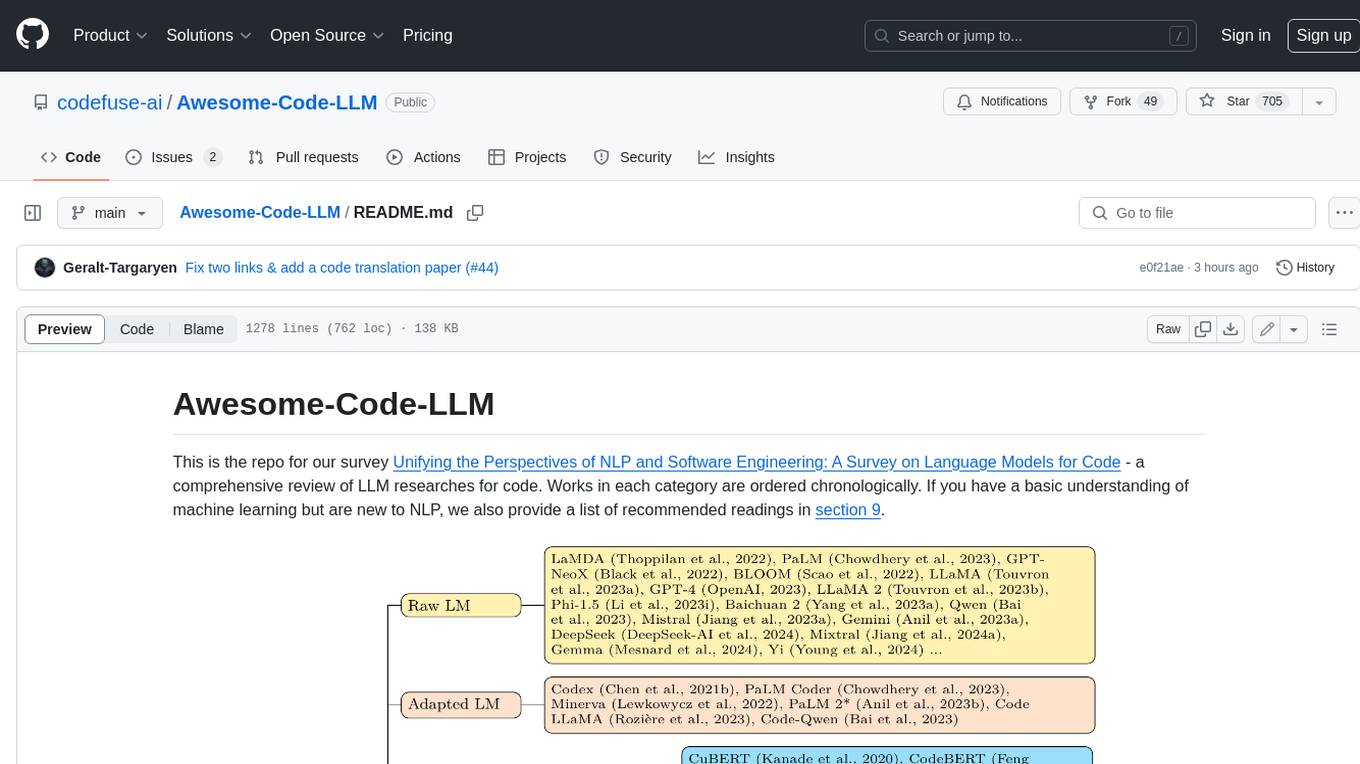
Awesome-Code-LLM
Analyze the following text from a github repository (name and readme text at end) . Then, generate a JSON object with the following keys and provide the corresponding information for each key, in lowercase letters: 'description' (detailed description of the repo, must be less than 400 words,Ensure that no line breaks and quotation marks.),'for_jobs' (List 5 jobs suitable for this tool,in lowercase letters), 'ai_keywords' (keywords of the tool,user may use those keyword to find the tool,in lowercase letters), 'for_tasks' (list of 5 specific tasks user can use this tool to do,in lowercase letters), 'answer' (in english languages)
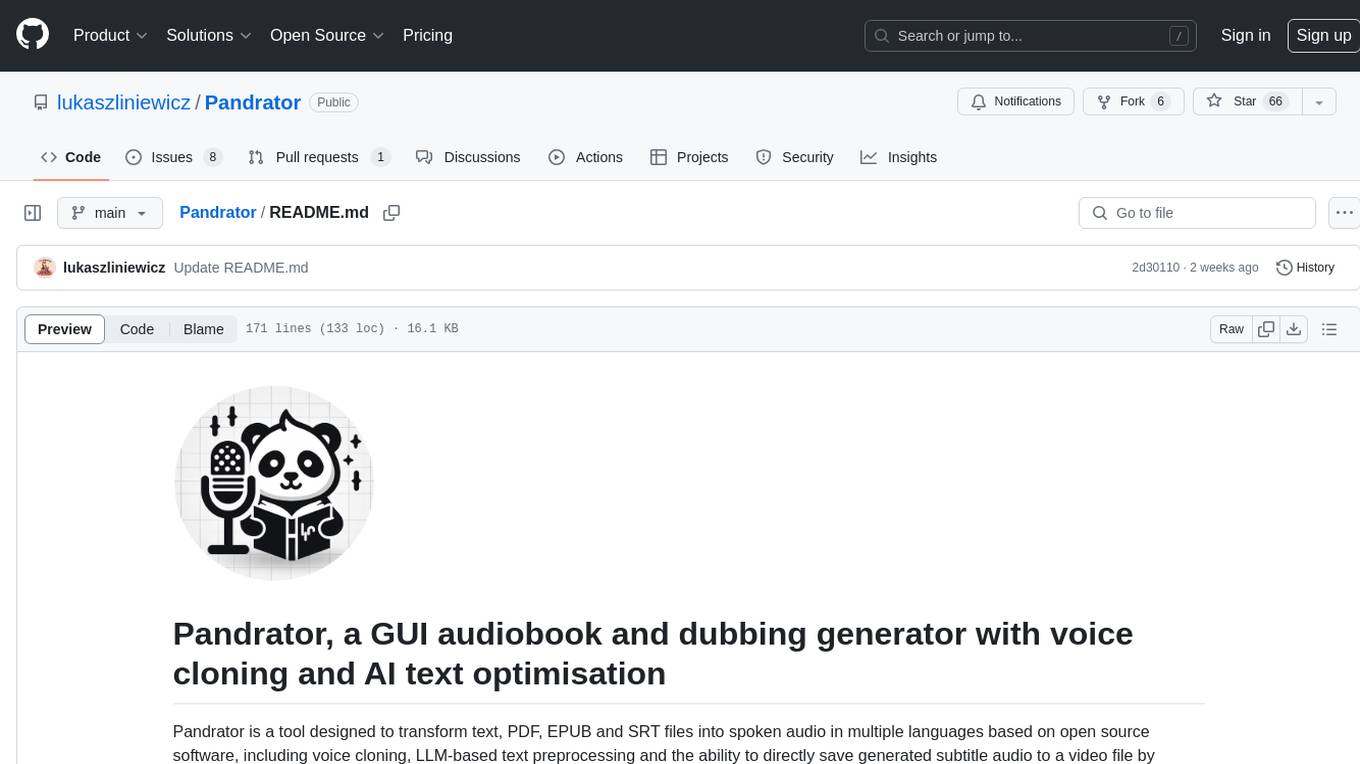
Pandrator
Pandrator is a GUI tool for generating audiobooks and dubbing using voice cloning and AI. It transforms text, PDF, EPUB, and SRT files into spoken audio in multiple languages. It leverages XTTS, Silero, and VoiceCraft models for text-to-speech conversion and voice cloning, with additional features like LLM-based text preprocessing and NISQA for audio quality evaluation. The tool aims to be user-friendly with a one-click installer and a graphical interface.
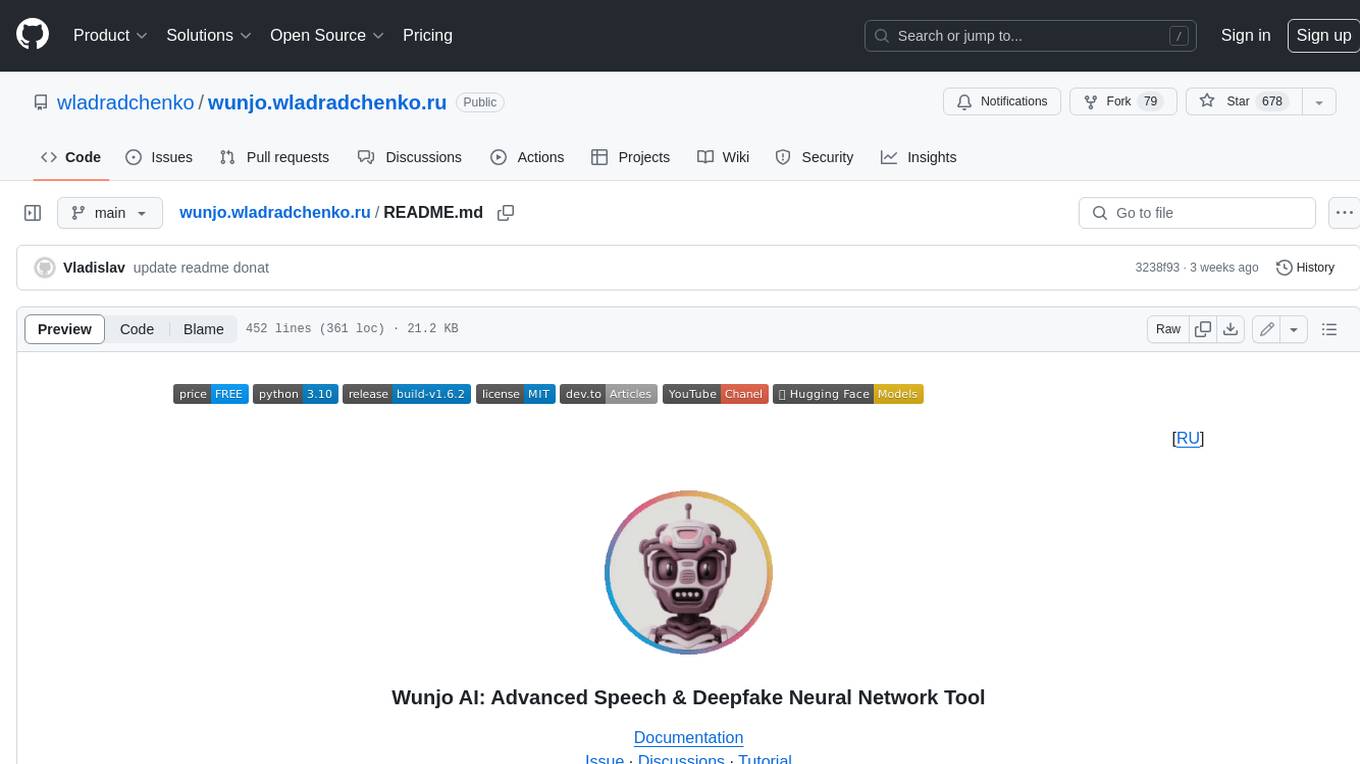
wunjo.wladradchenko.ru
Wunjo AI is a comprehensive tool that empowers users to explore the realm of speech synthesis, deepfake animations, video-to-video transformations, and more. Its user-friendly interface and privacy-first approach make it accessible to both beginners and professionals alike. With Wunjo AI, you can effortlessly convert text into human-like speech, clone voices from audio files, create multi-dialogues with distinct voice profiles, and perform real-time speech recognition. Additionally, you can animate faces using just one photo combined with audio, swap faces in videos, GIFs, and photos, and even remove unwanted objects or enhance the quality of your deepfakes using the AI Retouch Tool. Wunjo AI is an all-in-one solution for your voice and visual AI needs, offering endless possibilities for creativity and expression.
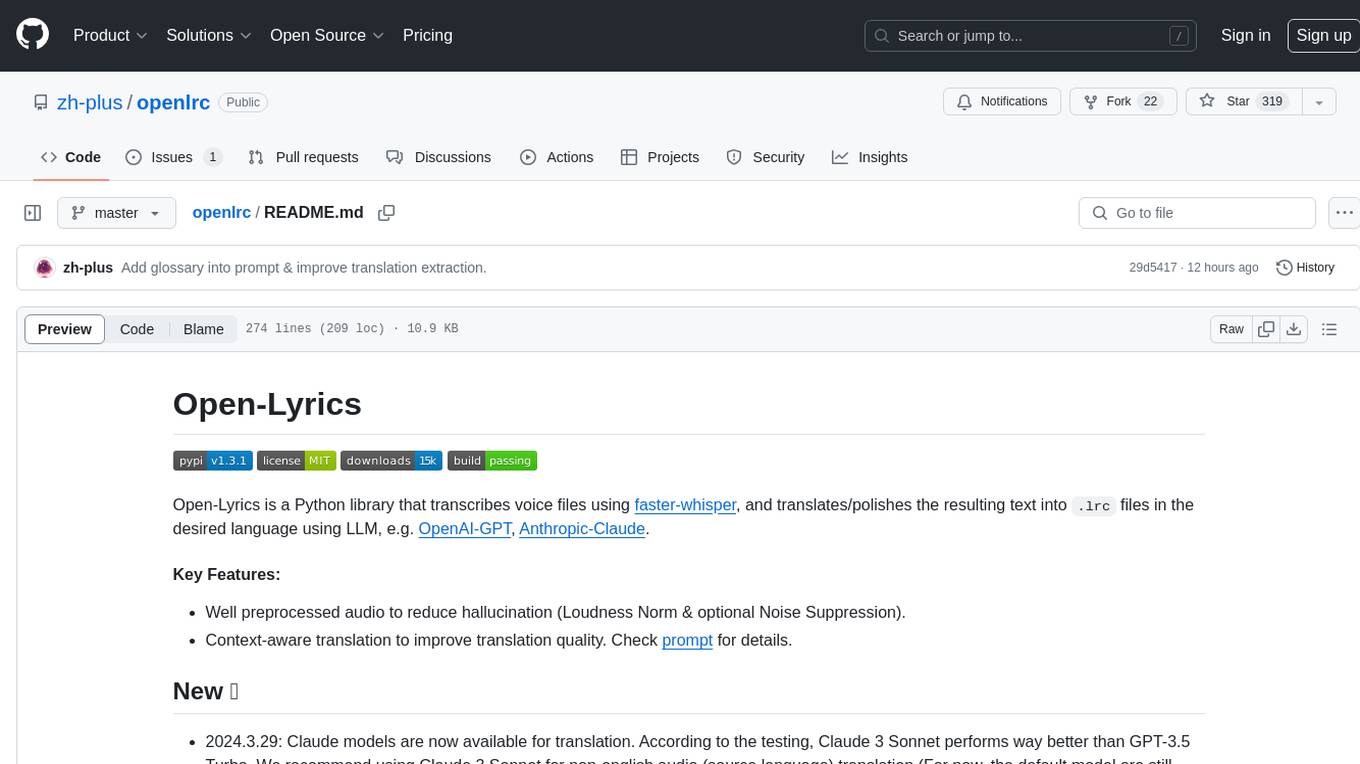
openlrc
Open-Lyrics is a Python library that transcribes voice files using faster-whisper and translates/polishes the resulting text into `.lrc` files in the desired language using LLM, e.g. OpenAI-GPT, Anthropic-Claude. It offers well preprocessed audio to reduce hallucination and context-aware translation to improve translation quality. Users can install the library from PyPI or GitHub and follow the installation steps to set up the environment. The tool supports GUI usage and provides Python code examples for transcription and translation tasks. It also includes features like utilizing context and glossary for translation enhancement, pricing information for different models, and a list of todo tasks for future improvements.
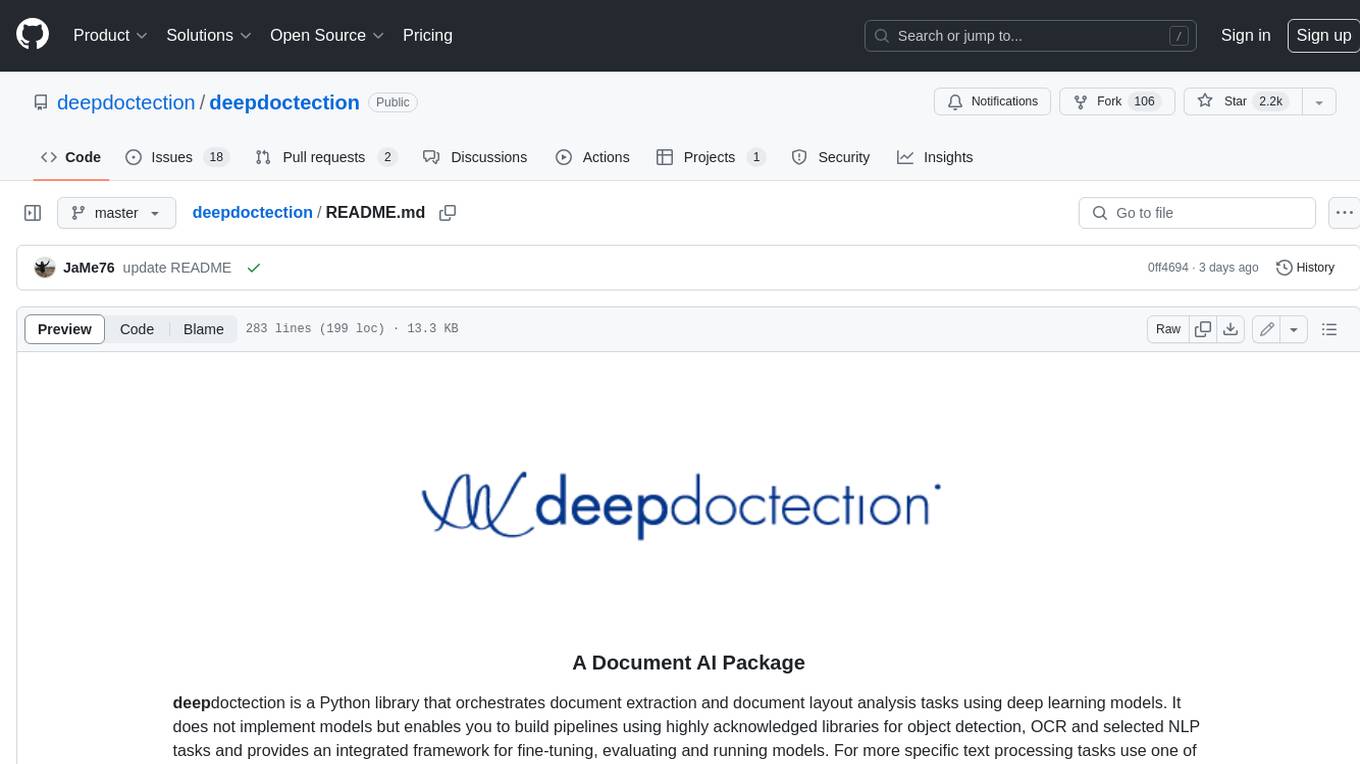
deepdoctection
**deep** doctection is a Python library that orchestrates document extraction and document layout analysis tasks using deep learning models. It does not implement models but enables you to build pipelines using highly acknowledged libraries for object detection, OCR and selected NLP tasks and provides an integrated framework for fine-tuning, evaluating and running models. For more specific text processing tasks use one of the many other great NLP libraries. **deep** doctection focuses on applications and is made for those who want to solve real world problems related to document extraction from PDFs or scans in various image formats. **deep** doctection provides model wrappers of supported libraries for various tasks to be integrated into pipelines. Its core function does not depend on any specific deep learning library. Selected models for the following tasks are currently supported: * Document layout analysis including table recognition in Tensorflow with **Tensorpack**, or PyTorch with **Detectron2**, * OCR with support of **Tesseract**, **DocTr** (Tensorflow and PyTorch implementations available) and a wrapper to an API for a commercial solution, * Text mining for native PDFs with **pdfplumber**, * Language detection with **fastText**, * Deskewing and rotating images with **jdeskew**. * Document and token classification with all LayoutLM models provided by the **Transformer library**. (Yes, you can use any LayoutLM-model with any of the provided OCR-or pdfplumber tools straight away!). * Table detection and table structure recognition with **table-transformer**. * There is a small dataset for token classification available and a lot of new tutorials to show, how to train and evaluate this dataset using LayoutLMv1, LayoutLMv2, LayoutXLM and LayoutLMv3. * Comprehensive configuration of **analyzer** like choosing different models, output parsing, OCR selection. Check this notebook or the docs for more infos. * Document layout analysis and table recognition now runs with **Torchscript** (CPU) as well and **Detectron2** is not required anymore for basic inference. * [**new**] More angle predictors for determining the rotation of a document based on **Tesseract** and **DocTr** (not contained in the built-in Analyzer). * [**new**] Token classification with **LiLT** via **transformers**. We have added a model wrapper for token classification with LiLT and added a some LiLT models to the model catalog that seem to look promising, especially if you want to train a model on non-english data. The training script for LayoutLM can be used for LiLT as well and we will be providing a notebook on how to train a model on a custom dataset soon. **deep** doctection provides on top of that methods for pre-processing inputs to models like cropping or resizing and to post-process results, like validating duplicate outputs, relating words to detected layout segments or ordering words into contiguous text. You will get an output in JSON format that you can customize even further by yourself. Have a look at the **introduction notebook** in the notebook repo for an easy start. Check the **release notes** for recent updates. **deep** doctection or its support libraries provide pre-trained models that are in most of the cases available at the **Hugging Face Model Hub** or that will be automatically downloaded once requested. For instance, you can find pre-trained object detection models from the Tensorpack or Detectron2 framework for coarse layout analysis, table cell detection and table recognition. Training is a substantial part to get pipelines ready on some specific domain, let it be document layout analysis, document classification or NER. **deep** doctection provides training scripts for models that are based on trainers developed from the library that hosts the model code. Moreover, **deep** doctection hosts code to some well established datasets like **Publaynet** that makes it easy to experiment. It also contains mappings from widely used data formats like COCO and it has a dataset framework (akin to **datasets** so that setting up training on a custom dataset becomes very easy. **This notebook** shows you how to do this. **deep** doctection comes equipped with a framework that allows you to evaluate predictions of a single or multiple models in a pipeline against some ground truth. Check again **here** how it is done. Having set up a pipeline it takes you a few lines of code to instantiate the pipeline and after a for loop all pages will be processed through the pipeline.
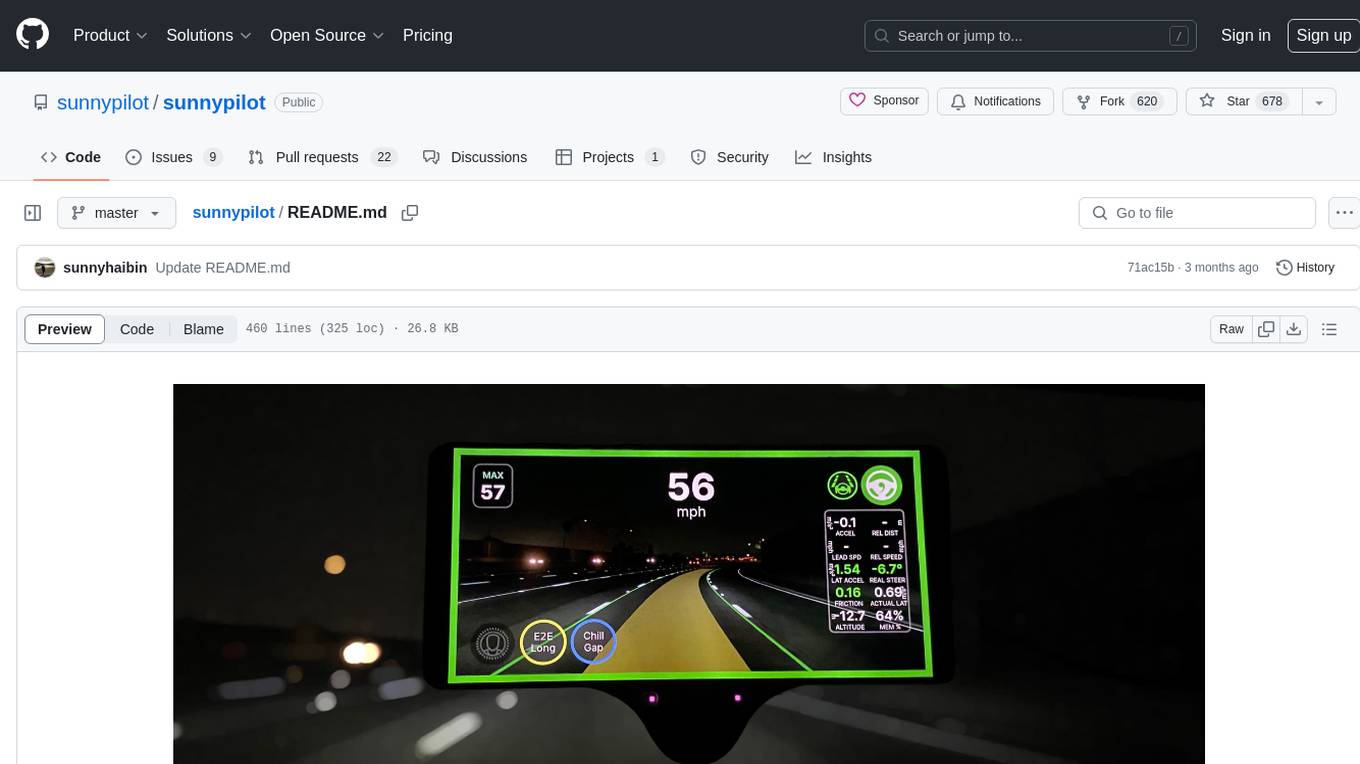
sunnypilot
Sunnypilot is a fork of comma.ai's openpilot, offering a unique driving experience for over 250+ supported car makes and models with modified behaviors of driving assist engagements. It complies with comma.ai's safety rules and provides features like Modified Assistive Driving Safety, Dynamic Lane Profile, Enhanced Speed Control, Gap Adjust Cruise, and more. Users can install it on supported devices and cars following detailed instructions, ensuring a safe and enhanced driving experience.
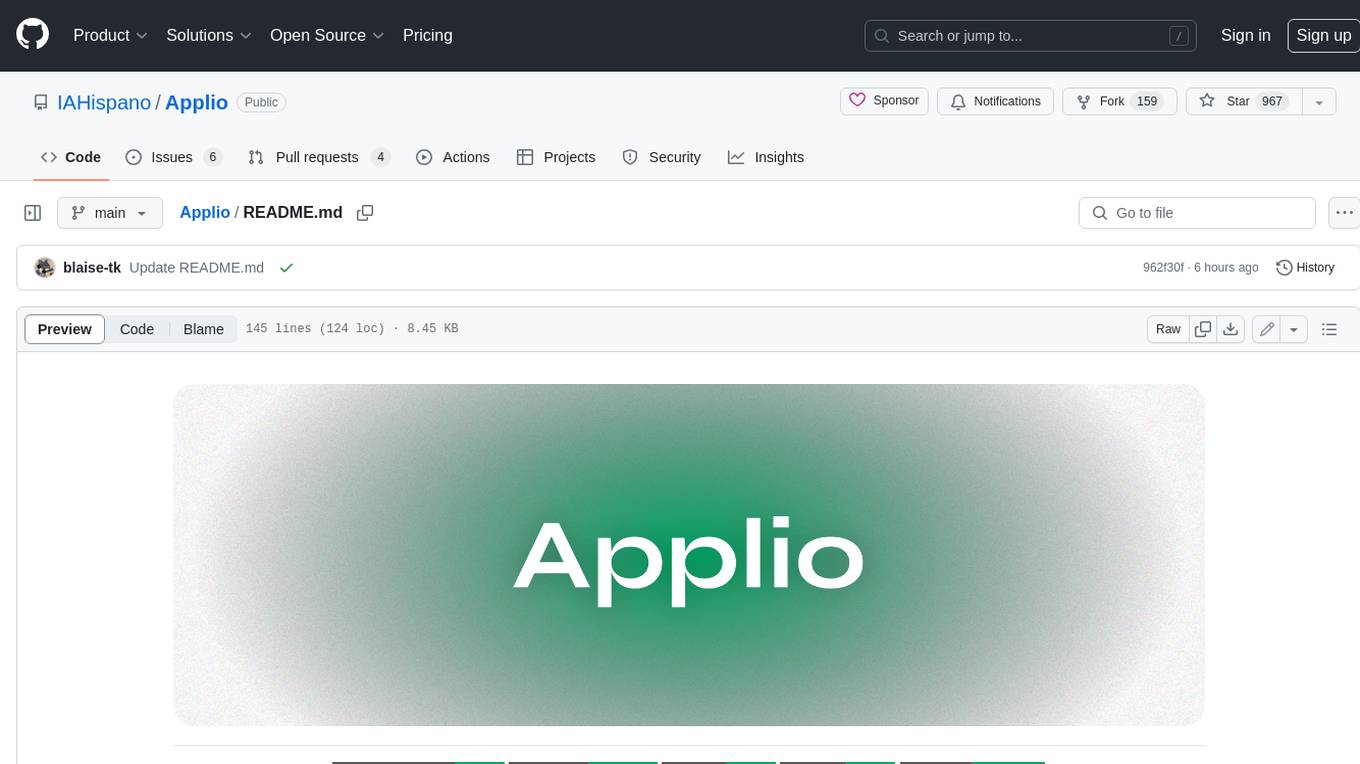
Applio
Applio is a VITS-based Voice Conversion tool focused on simplicity, quality, and performance. It features a user-friendly interface, cross-platform compatibility, and a range of customization options. Applio is suitable for various tasks such as voice cloning, voice conversion, and audio editing. Its key features include a modular codebase, hop length implementation, translations in over 30 languages, optimized requirements, streamlined installation, hybrid F0 estimation, easy-to-use UI, optimized code and dependencies, plugin system, overtraining detector, model search, enhancements in pretrained models, voice blender, accessibility improvements, new F0 extraction methods, output format selection, hashing system, model download system, TTS enhancements, split audio, Discord presence, Flask integration, and support tab.
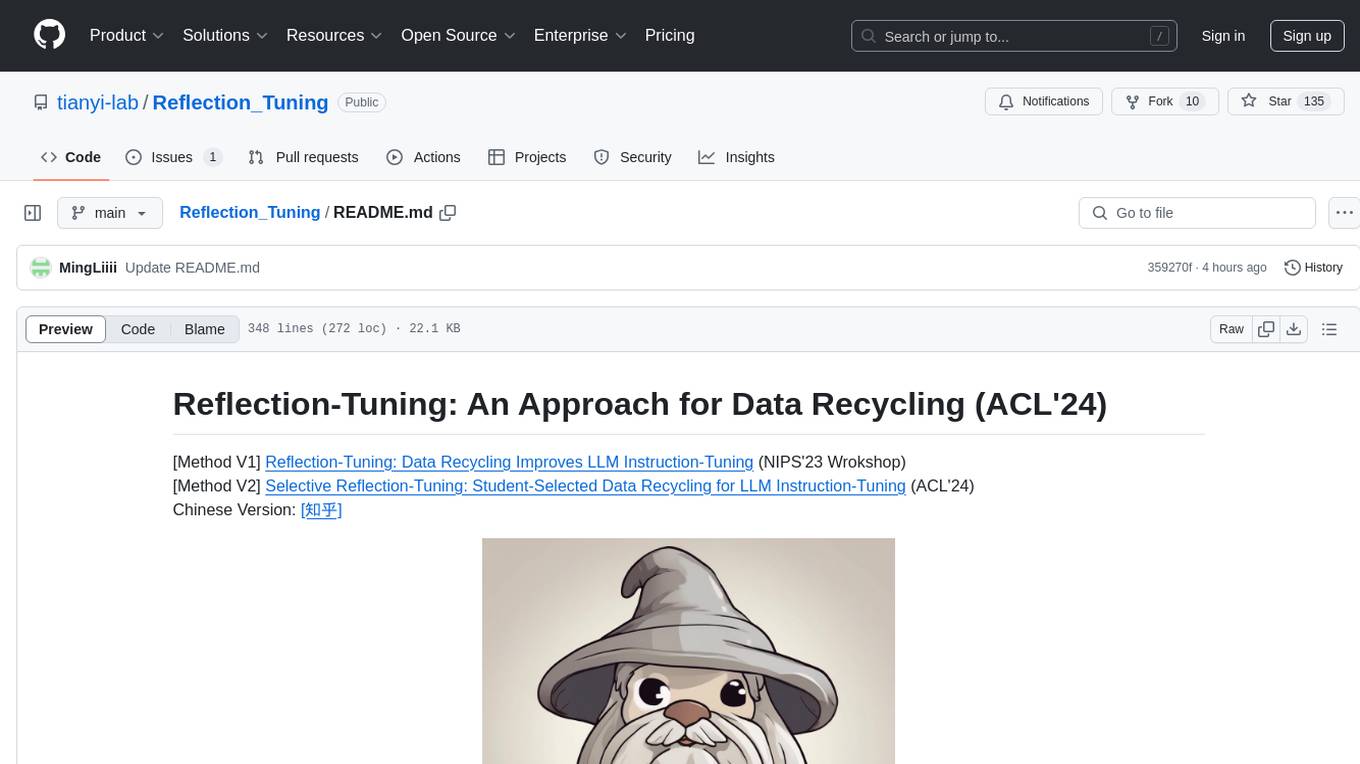
Reflection_Tuning
Reflection-Tuning is a project focused on improving the quality of instruction-tuning data through a reflection-based method. It introduces Selective Reflection-Tuning, where the student model can decide whether to accept the improvements made by the teacher model. The project aims to generate high-quality instruction-response pairs by defining specific criteria for the oracle model to follow and respond to. It also evaluates the efficacy and relevance of instruction-response pairs using the r-IFD metric. The project provides code for reflection and selection processes, along with data and model weights for both V1 and V2 methods.

DemoGPT
DemoGPT is an all-in-one agent library that provides tools, prompts, frameworks, and LLM models for streamlined agent development. It leverages GPT-3.5-turbo to generate LangChain code, creating interactive Streamlit applications. The tool is designed for creating intelligent, interactive, and inclusive solutions in LLM-based application development. It offers model flexibility, iterative development, and a commitment to user engagement. Future enhancements include integrating Gorilla for autonomous API usage and adding a publicly available database for refining the generation process.
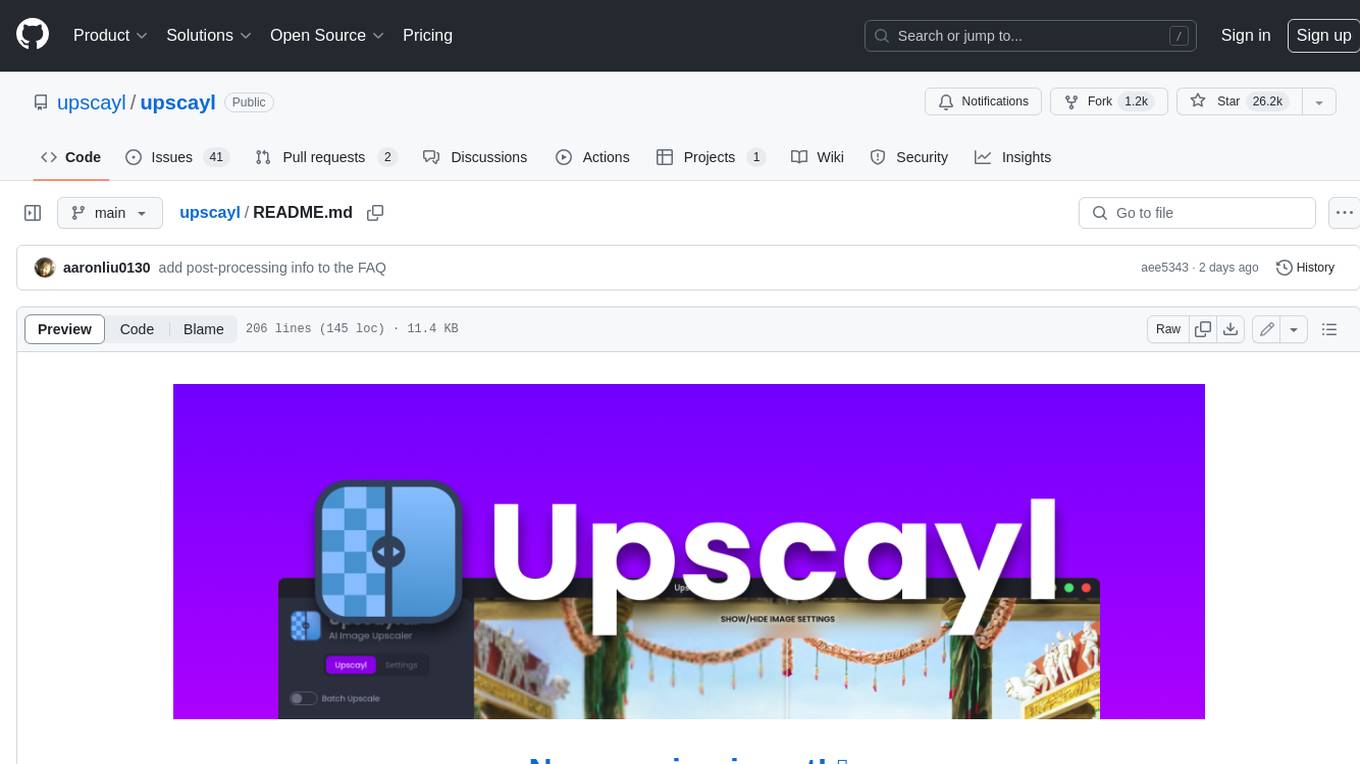
upscayl
Upscayl is a free and open-source AI image upscaler that uses advanced AI algorithms to enlarge and enhance low-resolution images without losing quality. It is a cross-platform application built with the Linux-first philosophy, available on all major desktop operating systems. Upscayl utilizes Real-ESRGAN and Vulkan architecture for image enhancement, and its backend is fully open-source under the AGPLv3 license. It is important to note that a Vulkan compatible GPU is required for Upscayl to function effectively.
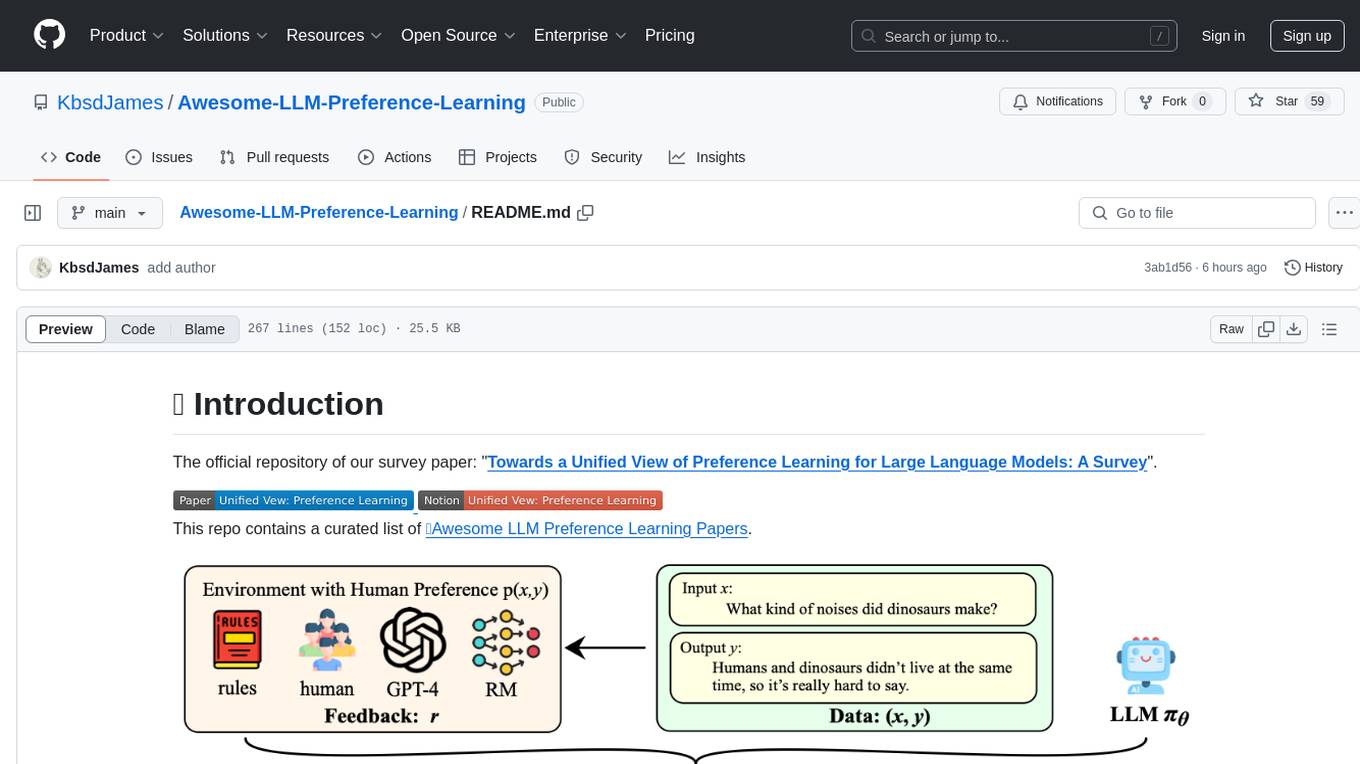
Awesome-LLM-Preference-Learning
The repository 'Awesome-LLM-Preference-Learning' is the official repository of a survey paper titled 'Towards a Unified View of Preference Learning for Large Language Models: A Survey'. It contains a curated list of papers related to preference learning for Large Language Models (LLMs). The repository covers various aspects of preference learning, including on-policy and off-policy methods, feedback mechanisms, reward models, algorithms, evaluation techniques, and more. The papers included in the repository explore different approaches to aligning LLMs with human preferences, improving mathematical reasoning in LLMs, enhancing code generation, and optimizing language model performance.
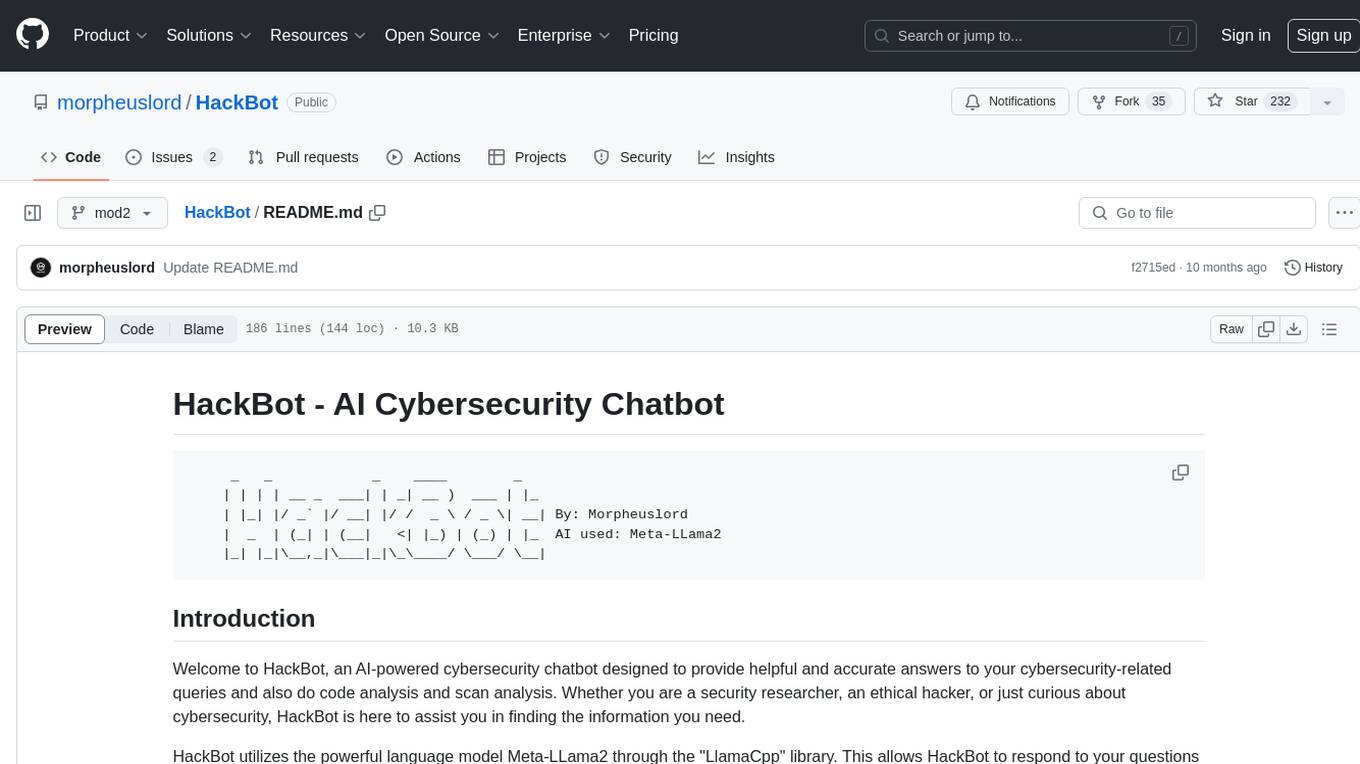
HackBot
HackBot is an AI-powered cybersecurity chatbot designed to provide accurate answers to cybersecurity-related queries, conduct code analysis, and scan analysis. It utilizes the Meta-LLama2 AI model through the 'LlamaCpp' library to respond coherently. The chatbot offers features like local AI/Runpod deployment support, cybersecurity chat assistance, interactive interface, clear output presentation, static code analysis, and vulnerability analysis. Users can interact with HackBot through a command-line interface and utilize it for various cybersecurity tasks.
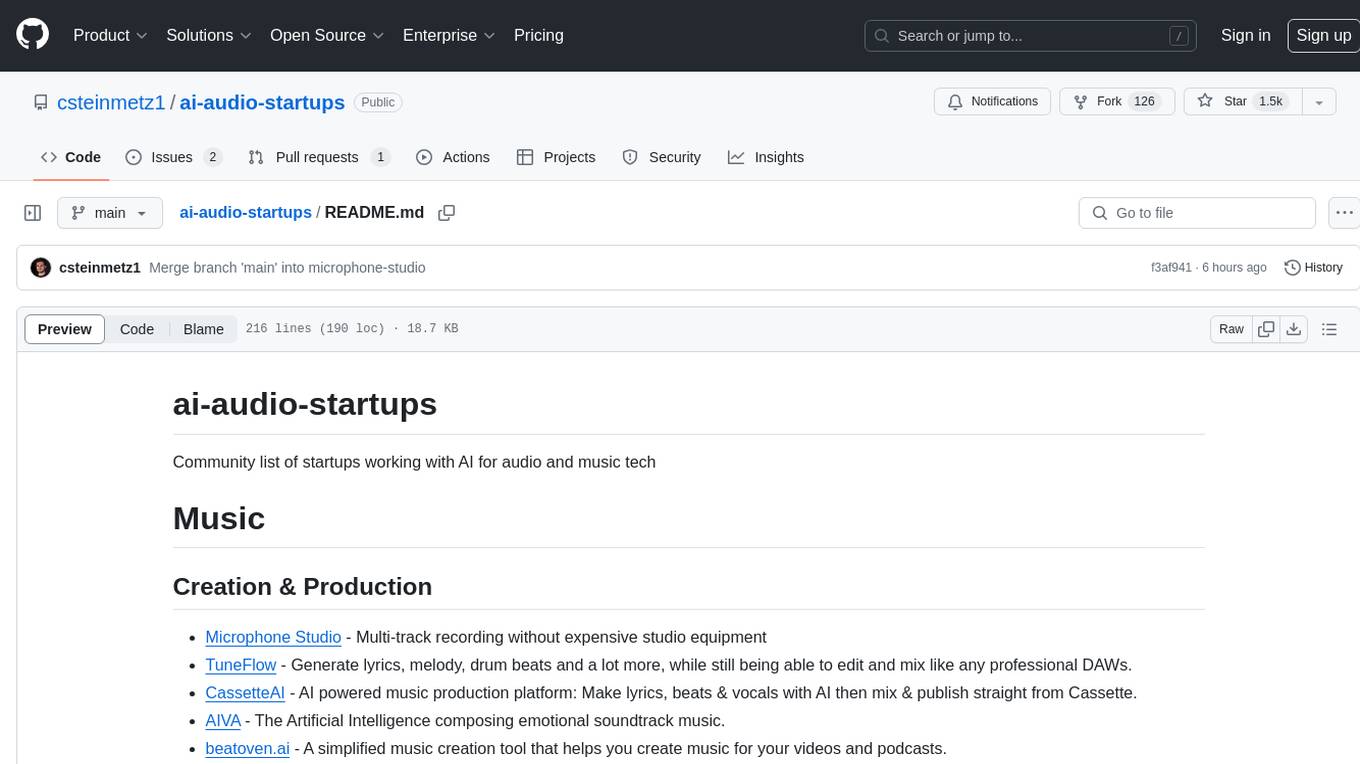
ai-audio-startups
The 'ai-audio-startups' repository is a community list of startups working with AI for audio and music tech. It includes a comprehensive collection of tools and platforms that leverage artificial intelligence to enhance various aspects of music creation, production, source separation, analysis, recommendation, health & wellbeing, radio/podcast, hearing, sound detection, speech transcription, synthesis, enhancement, and manipulation. The repository serves as a valuable resource for individuals interested in exploring innovative AI applications in the audio and music industry.
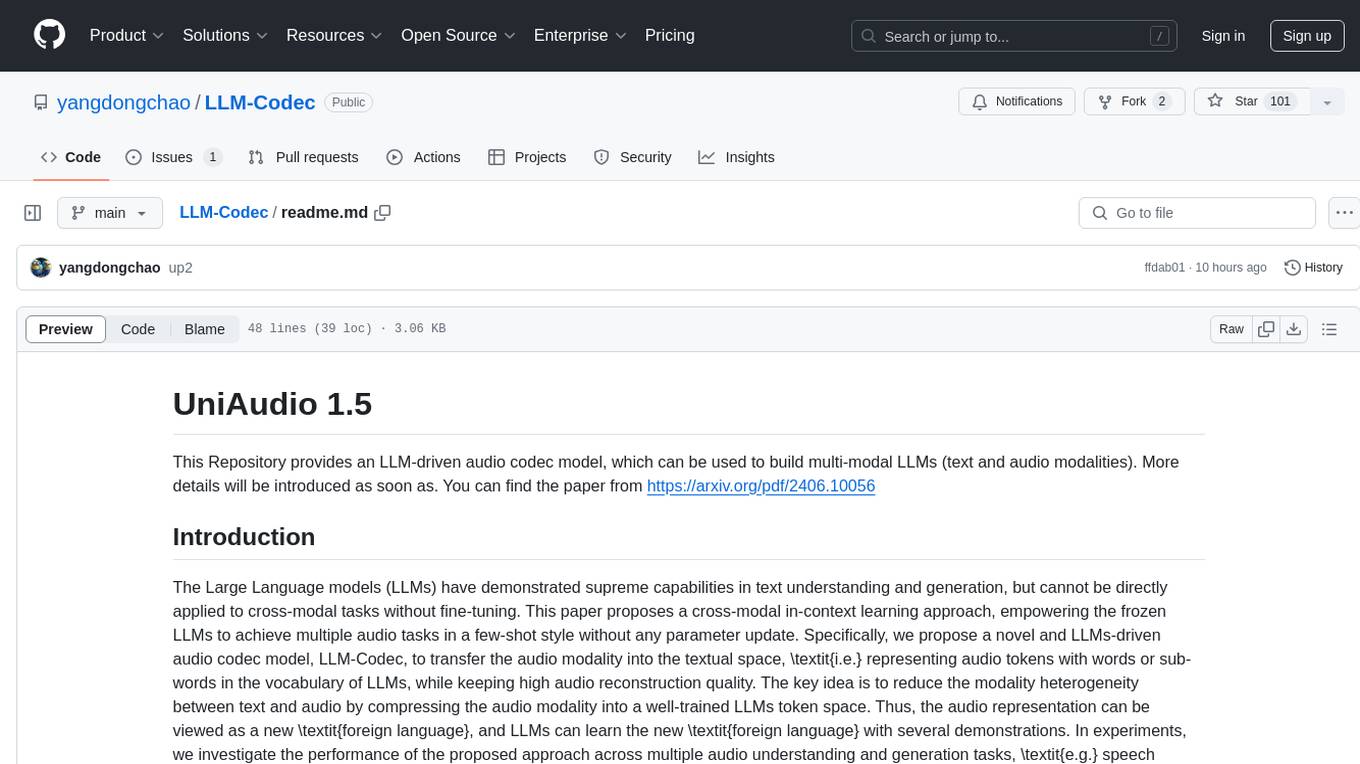
LLM-Codec
This repository provides an LLM-driven audio codec model, LLM-Codec, for building multi-modal LLMs (text and audio modalities). The model enables frozen LLMs to achieve multiple audio tasks in a few-shot style without parameter updates. It compresses the audio modality into a well-trained LLMs token space, treating audio representation as a 'foreign language' that LLMs can learn with minimal examples. The proposed approach supports tasks like speech emotion classification, audio classification, text-to-speech generation, speech enhancement, etc., demonstrating feasibility and effectiveness in simple scenarios. The LLM-Codec model is open-sourced to facilitate research on few-shot audio task learning and multi-modal LLMs.
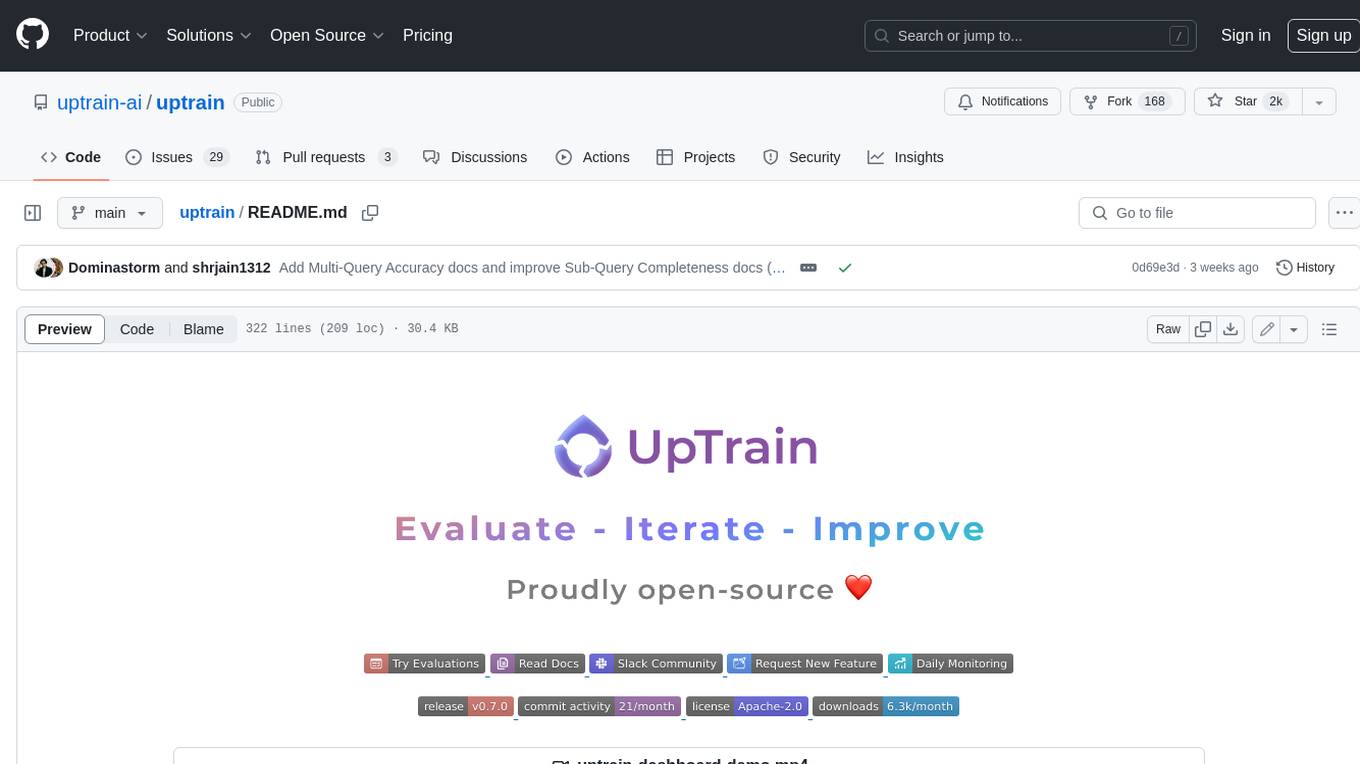
uptrain
UpTrain is an open-source unified platform to evaluate and improve Generative AI applications. We provide grades for 20+ preconfigured evaluations (covering language, code, embedding use cases), perform root cause analysis on failure cases and give insights on how to resolve them.
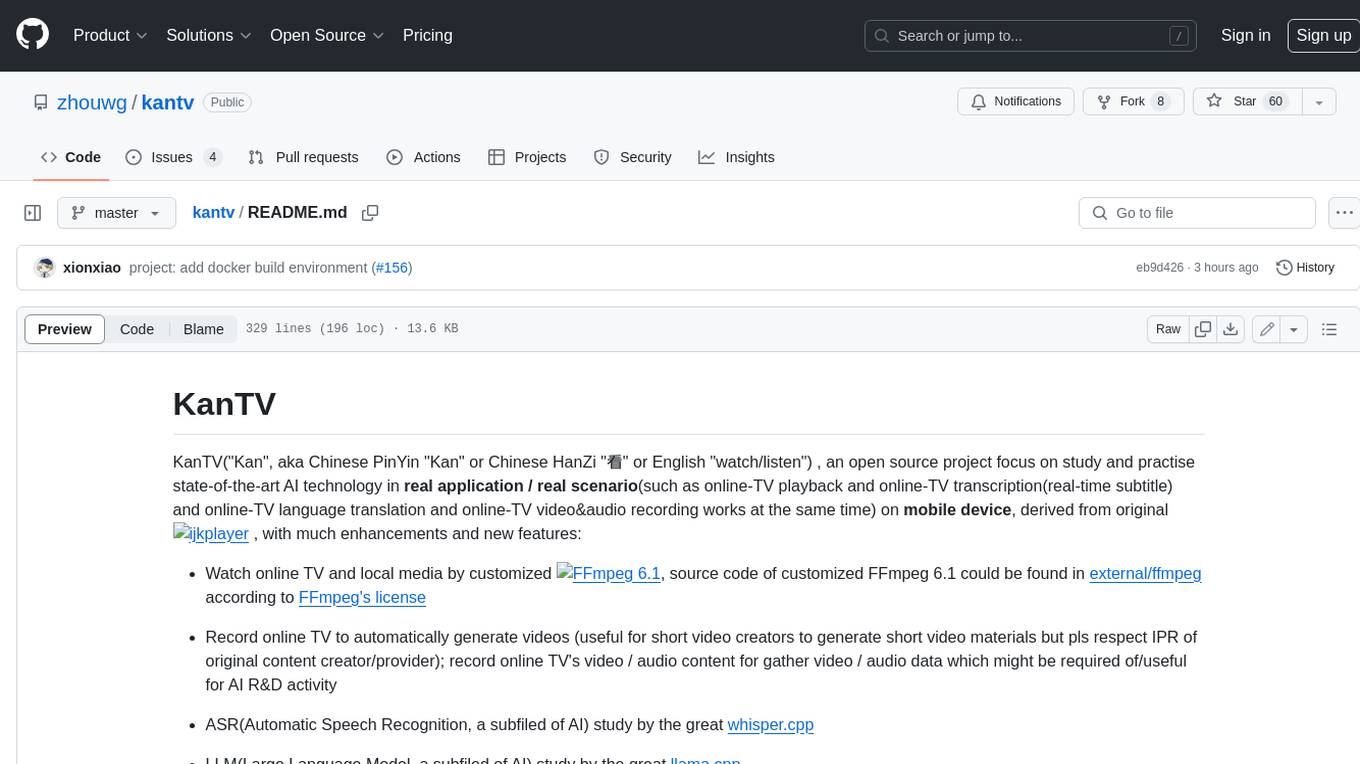
kantv
KanTV is an open-source project that focuses on studying and practicing state-of-the-art AI technology in real applications and scenarios, such as online TV playback, transcription, translation, and video/audio recording. It is derived from the original ijkplayer project and includes many enhancements and new features, including: * Watching online TV and local media using a customized FFmpeg 6.1. * Recording online TV to automatically generate videos. * Studying ASR (Automatic Speech Recognition) using whisper.cpp. * Studying LLM (Large Language Model) using llama.cpp. * Studying SD (Text to Image by Stable Diffusion) using stablediffusion.cpp. * Generating real-time English subtitles for English online TV using whisper.cpp. * Running/experiencing LLM on Xiaomi 14 using llama.cpp. * Setting up a customized playlist and using the software to watch the content for R&D activity. * Refactoring the UI to be closer to a real commercial Android application (currently only supports English). Some goals of this project are: * To provide a well-maintained "workbench" for ASR researchers interested in practicing state-of-the-art AI technology in real scenarios on mobile devices (currently focusing on Android). * To provide a well-maintained "workbench" for LLM researchers interested in practicing state-of-the-art AI technology in real scenarios on mobile devices (currently focusing on Android). * To create an Android "turn-key project" for AI experts/researchers (who may not be familiar with regular Android software development) to focus on device-side AI R&D activity, where part of the AI R&D activity (algorithm improvement, model training, model generation, algorithm validation, model validation, performance benchmark, etc.) can be done very easily using Android Studio IDE and a powerful Android phone.
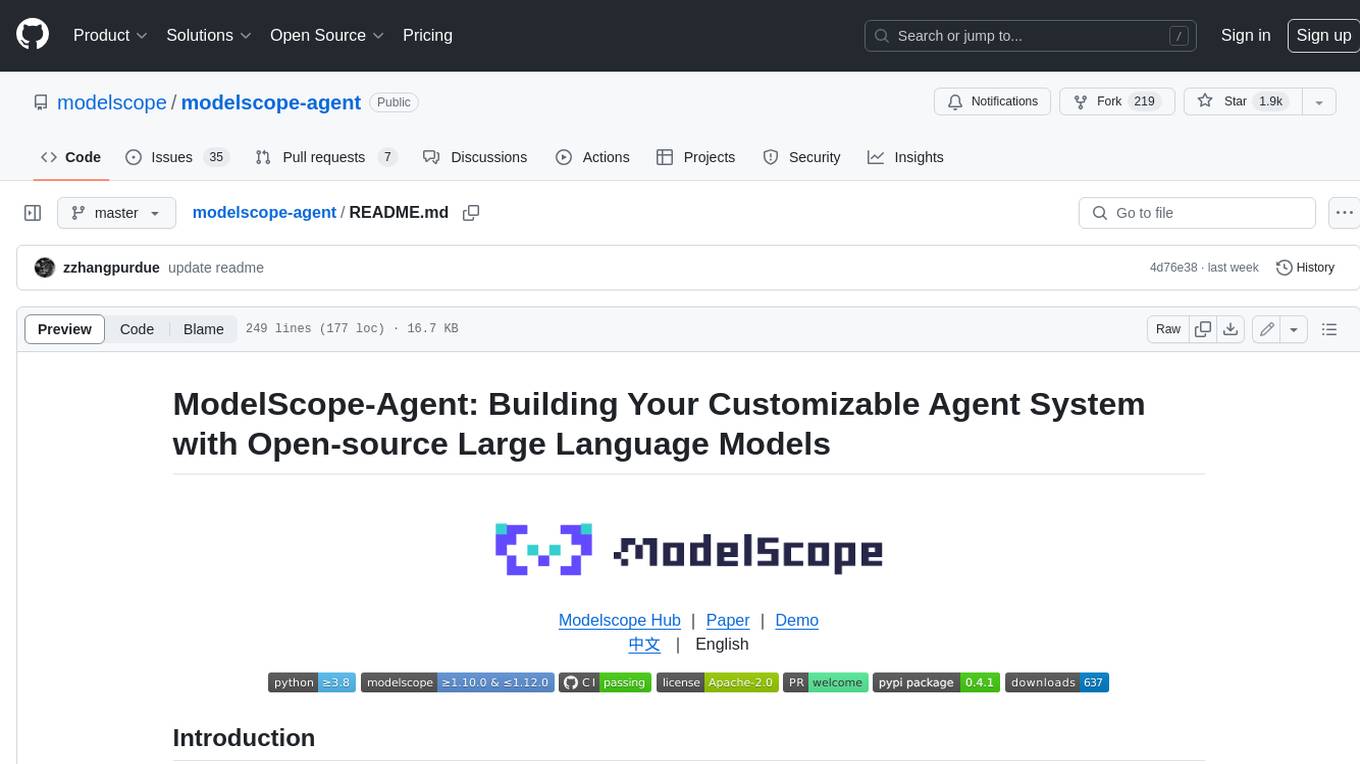
modelscope-agent
ModelScope-Agent is a customizable and scalable Agent framework. A single agent has abilities such as role-playing, LLM calling, tool usage, planning, and memory. It mainly has the following characteristics: - **Simple Agent Implementation Process**: Simply specify the role instruction, LLM name, and tool name list to implement an Agent application. The framework automatically arranges workflows for tool usage, planning, and memory. - **Rich models and tools**: The framework is equipped with rich LLM interfaces, such as Dashscope and Modelscope model interfaces, OpenAI model interfaces, etc. Built in rich tools, such as **code interpreter**, **weather query**, **text to image**, **web browsing**, etc., make it easy to customize exclusive agents. - **Unified interface and high scalability**: The framework has clear tools and LLM registration mechanism, making it convenient for users to expand more diverse Agent applications. - **Low coupling**: Developers can easily use built-in tools, LLM, memory, and other components without the need to bind higher-level agents.
20 - OpenAI Gpts
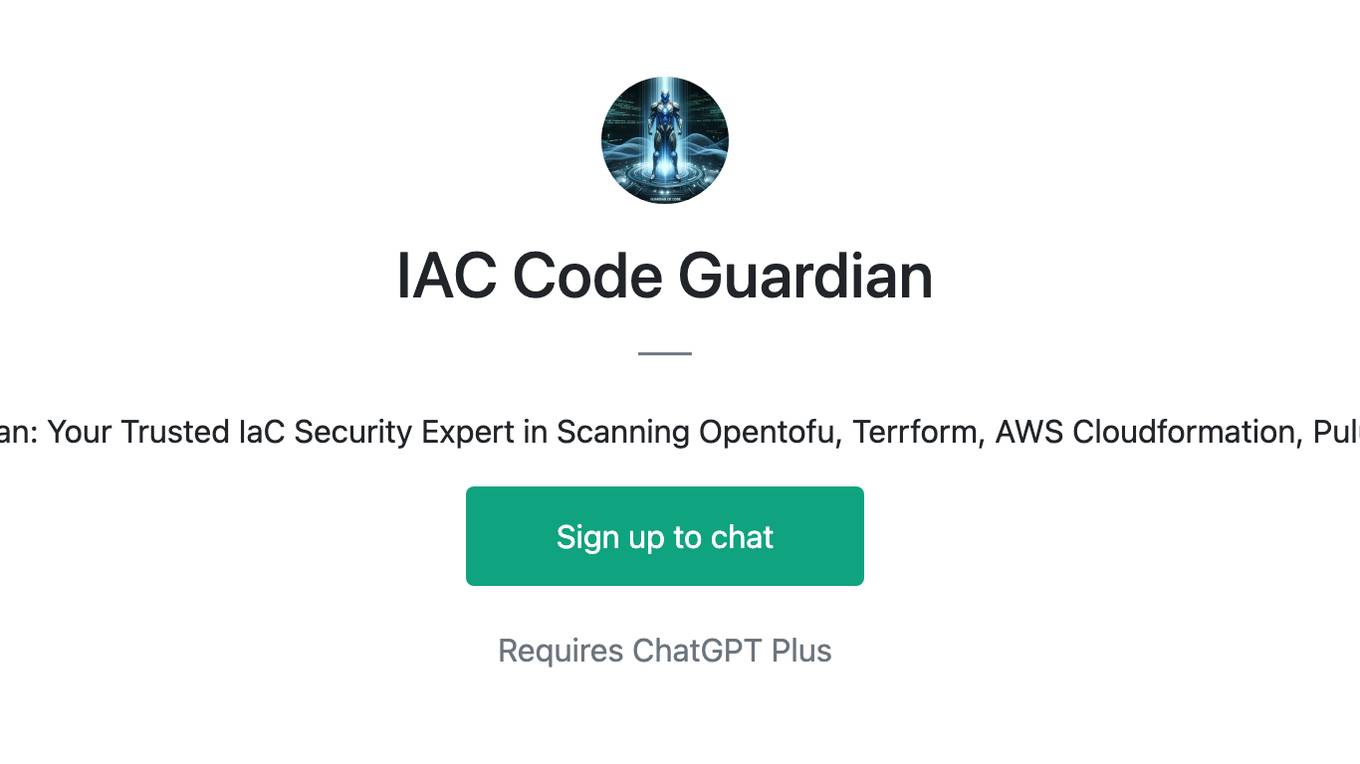
IAC Code Guardian
Introducing IAC Code Guardian: Your Trusted IaC Security Expert in Scanning Opentofu, Terrform, AWS Cloudformation, Pulumi, K8s Yaml & Dockerfile

Robert on Software Craftsmanship
Ask Robert Sösemann, a Salesforce MVP and inventor of PMD for Salesforce, about Salesforce Development, Clean Code and PMD
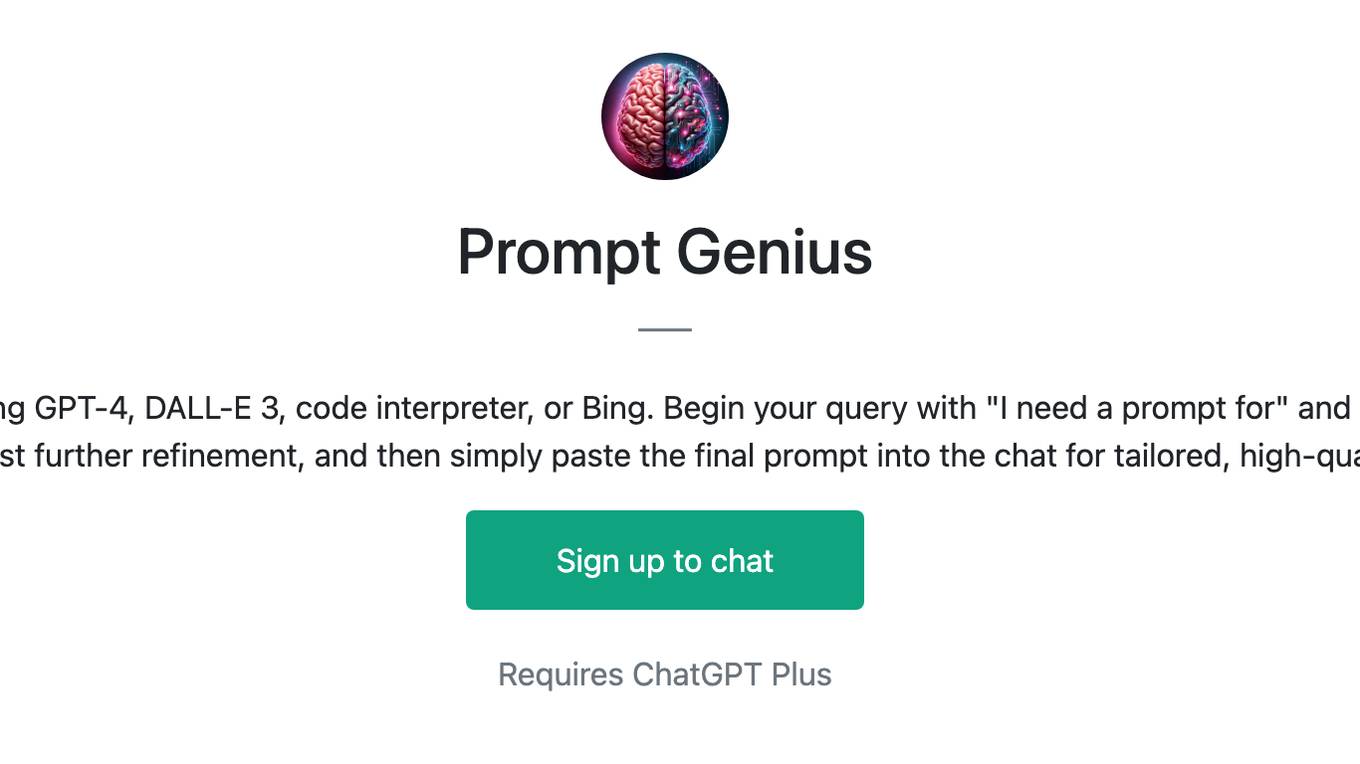
Prompt Genius
Crafts prompts and provides answers using GPT-4, DALL-E 3, code interpreter, or Bing. Begin your query with "I need a prompt for" and then describe what you're looking for. If needed, request further refinement, and then simply paste the final prompt into the chat for tailored, high-quality outputs.

